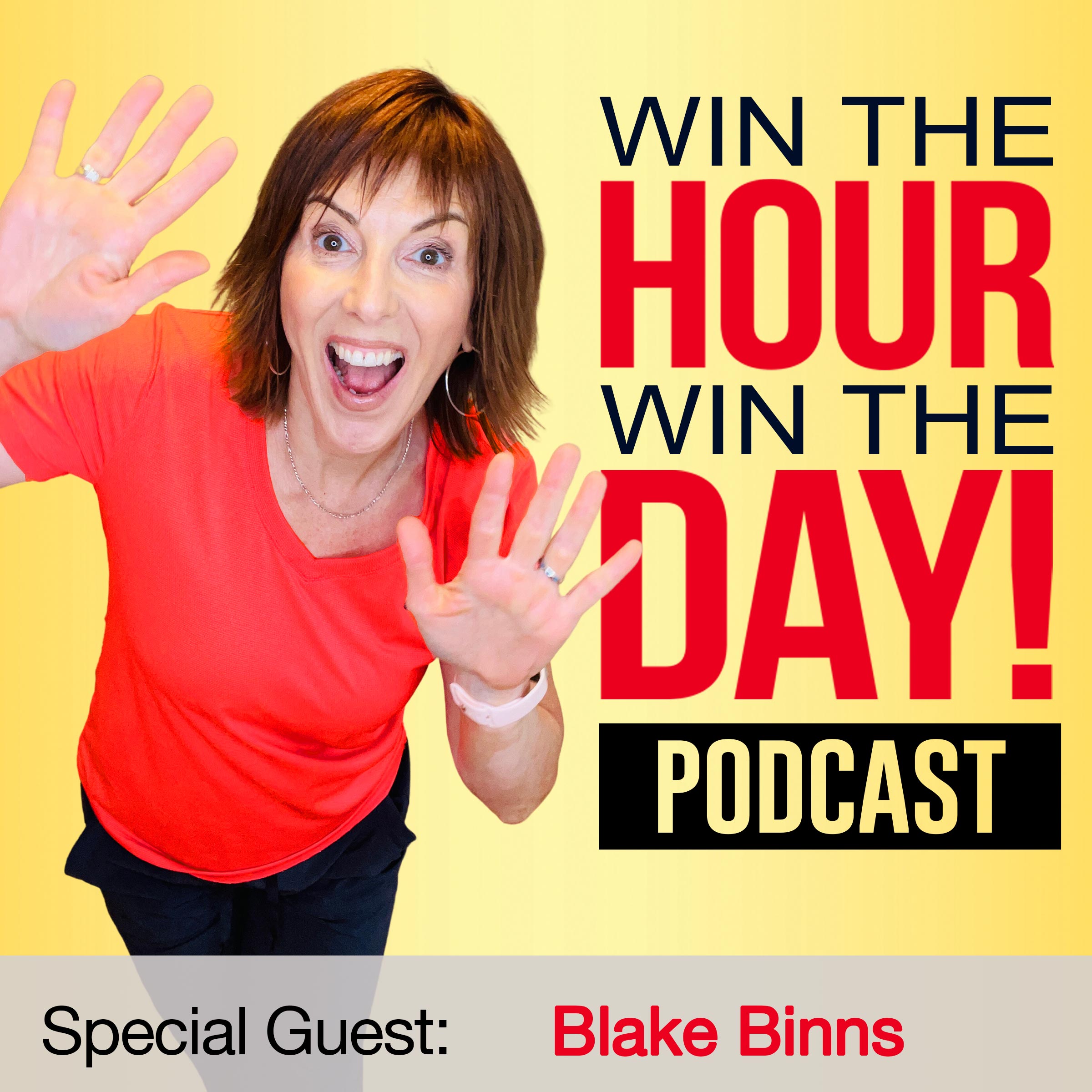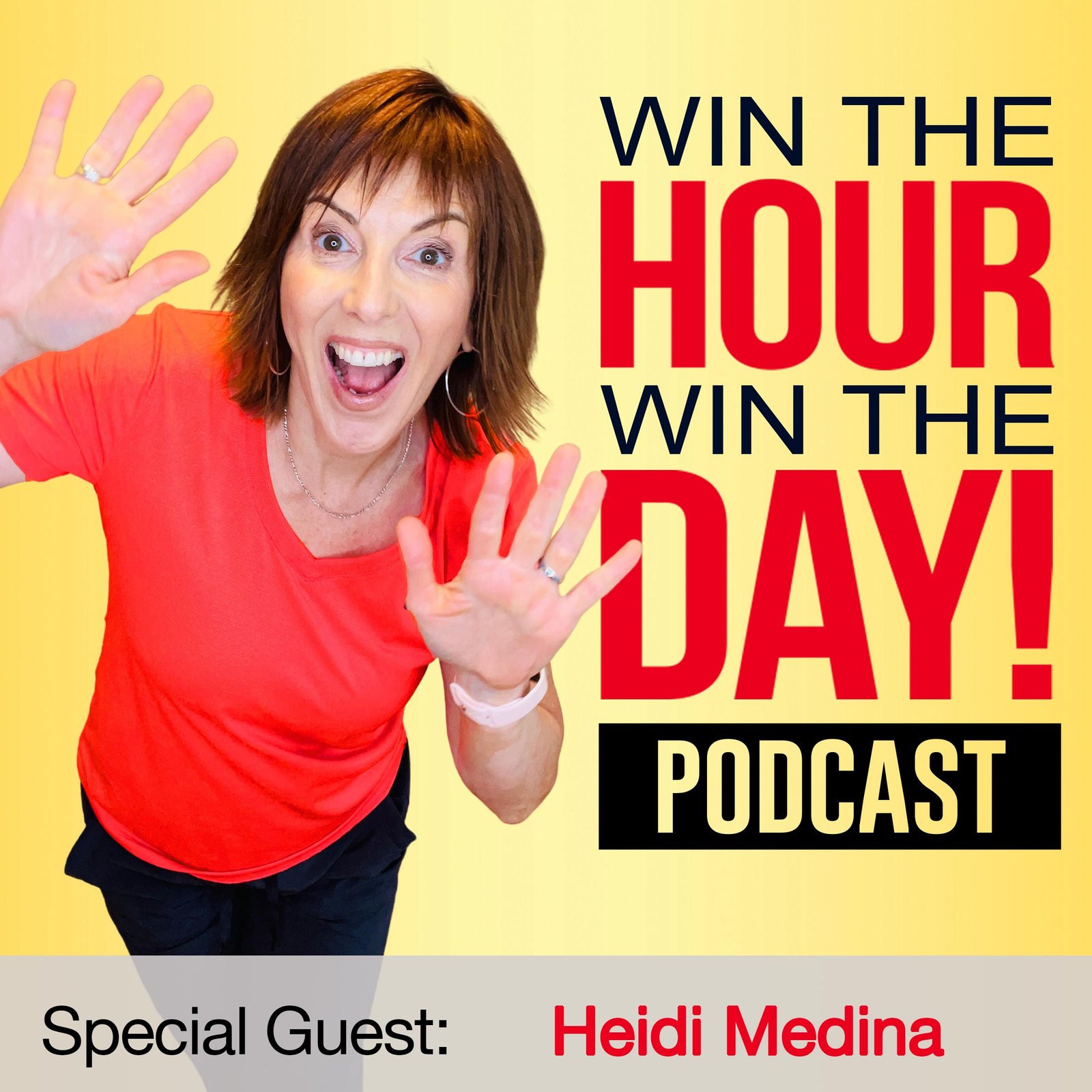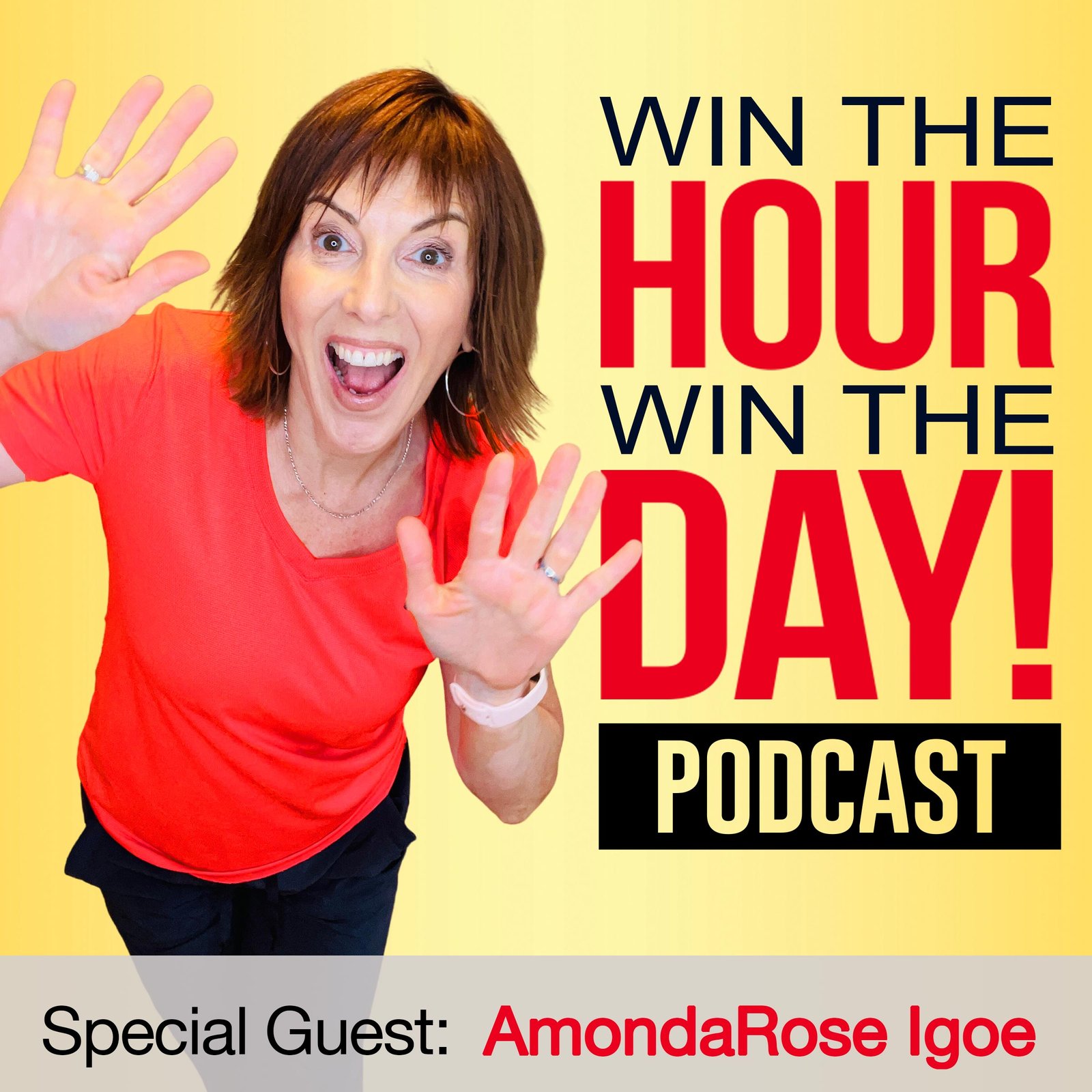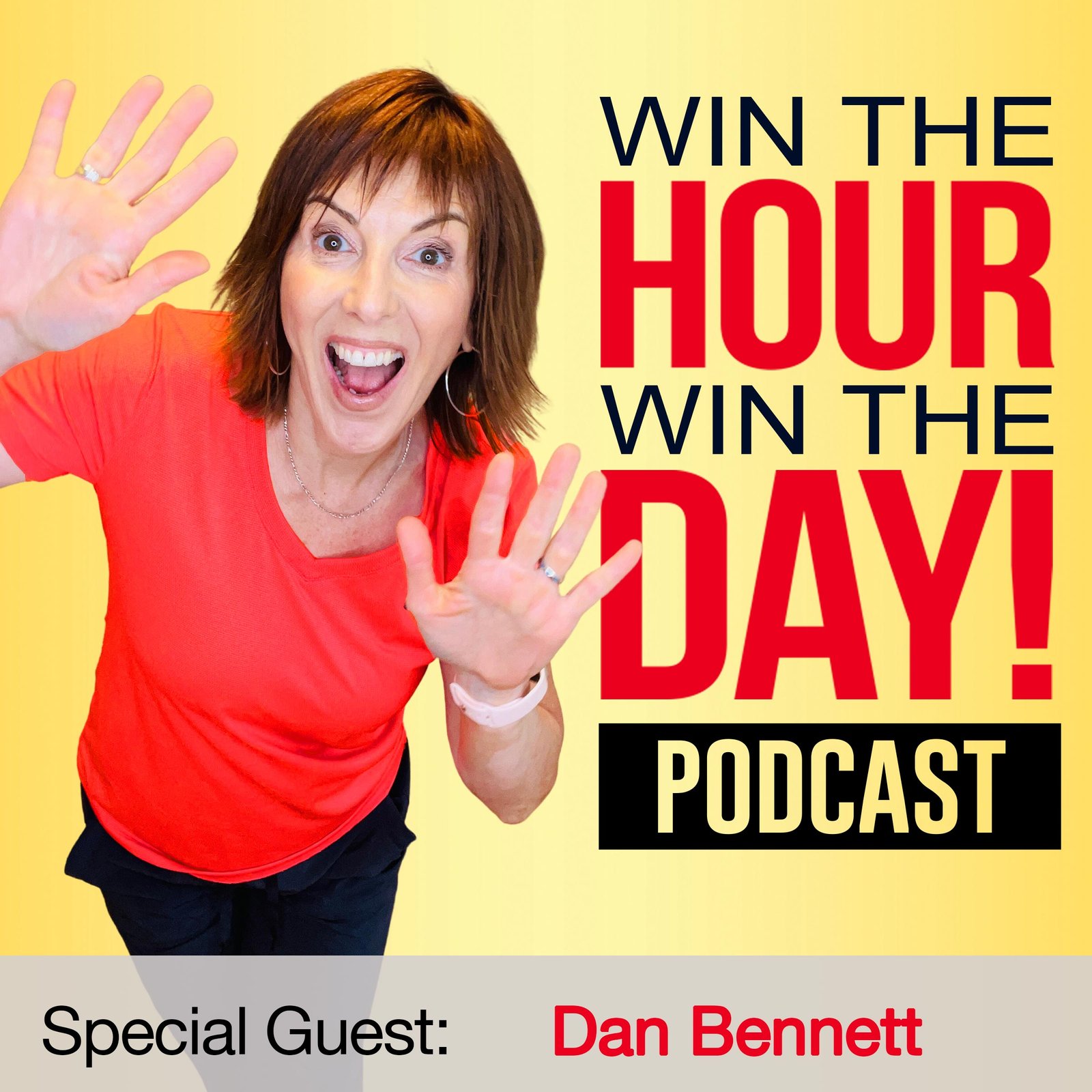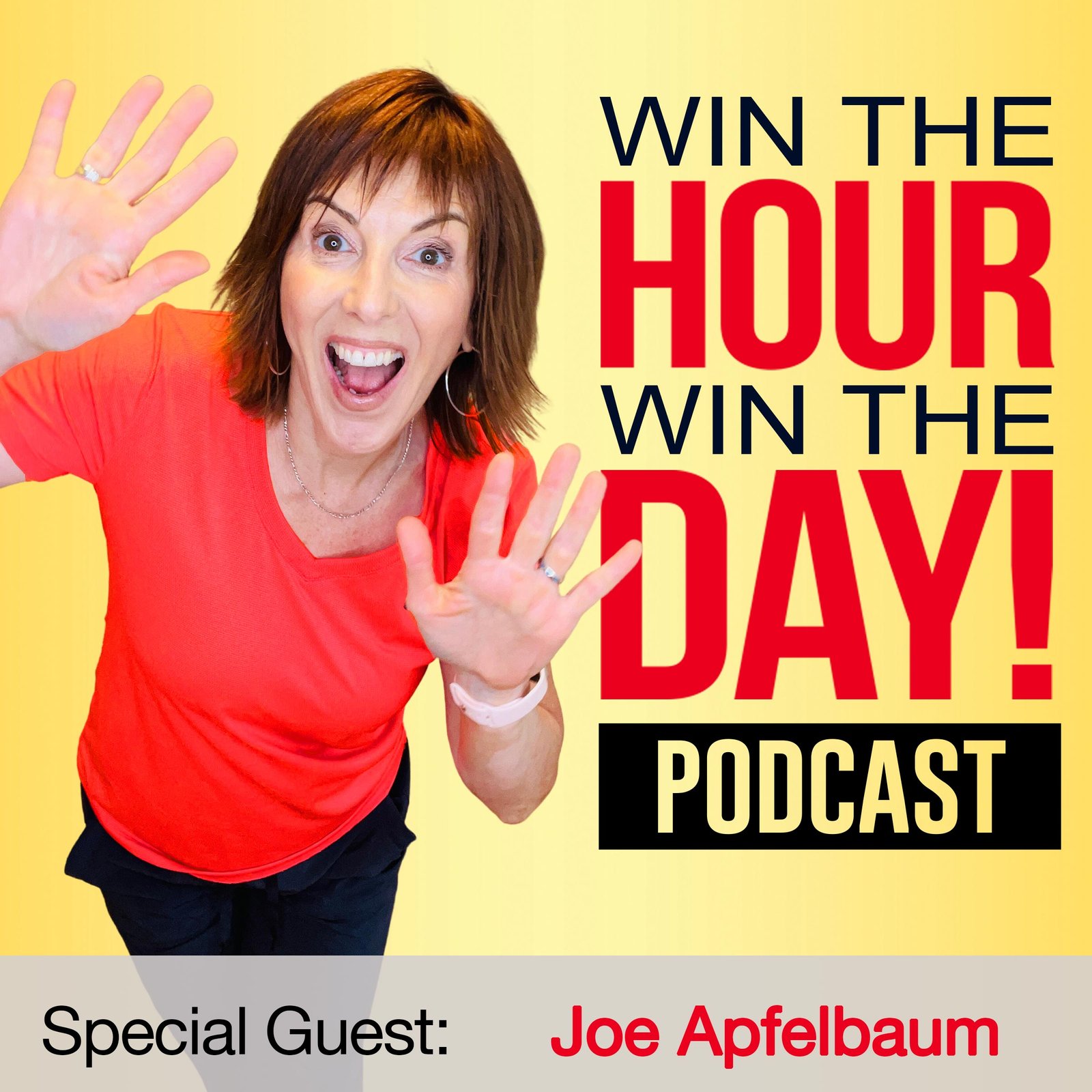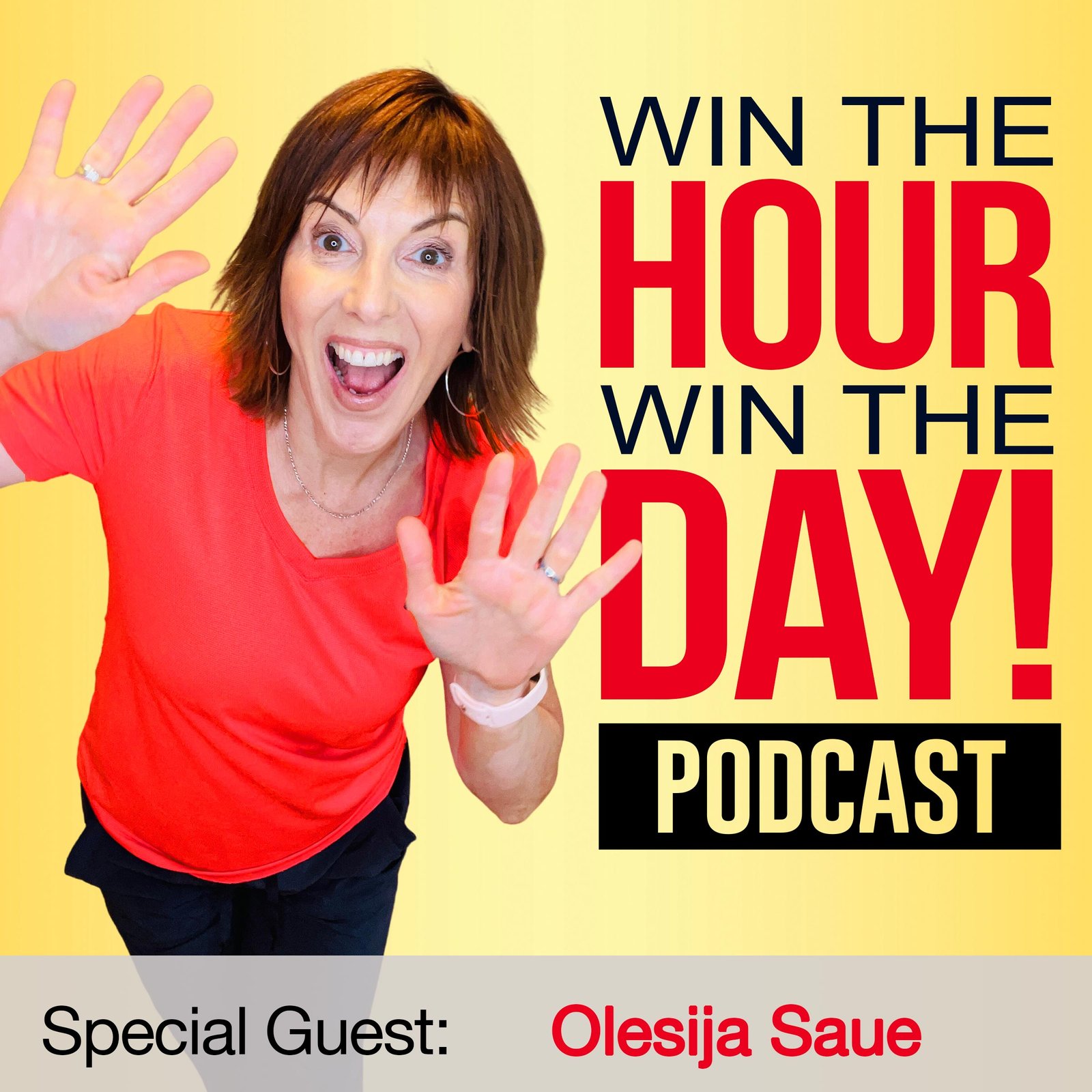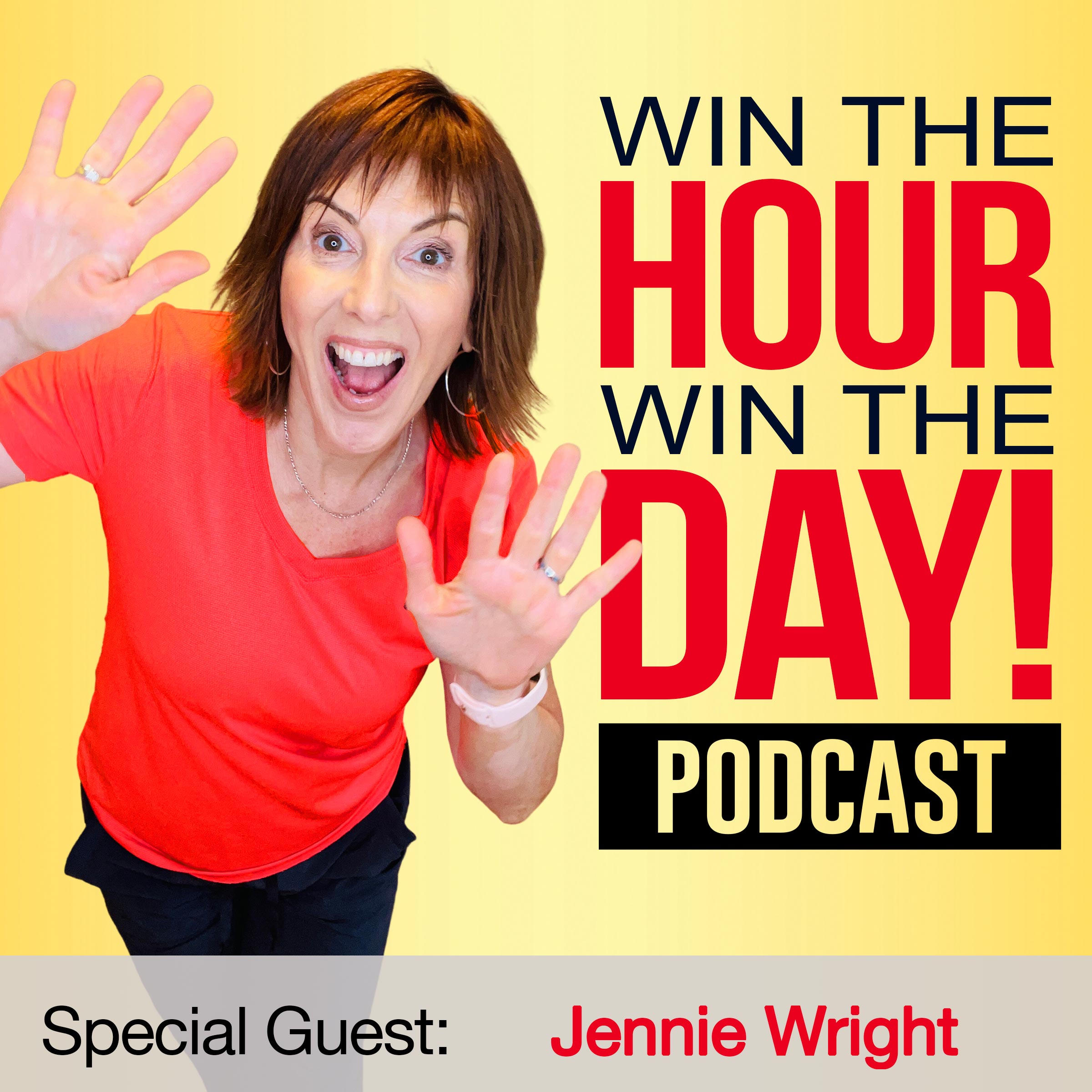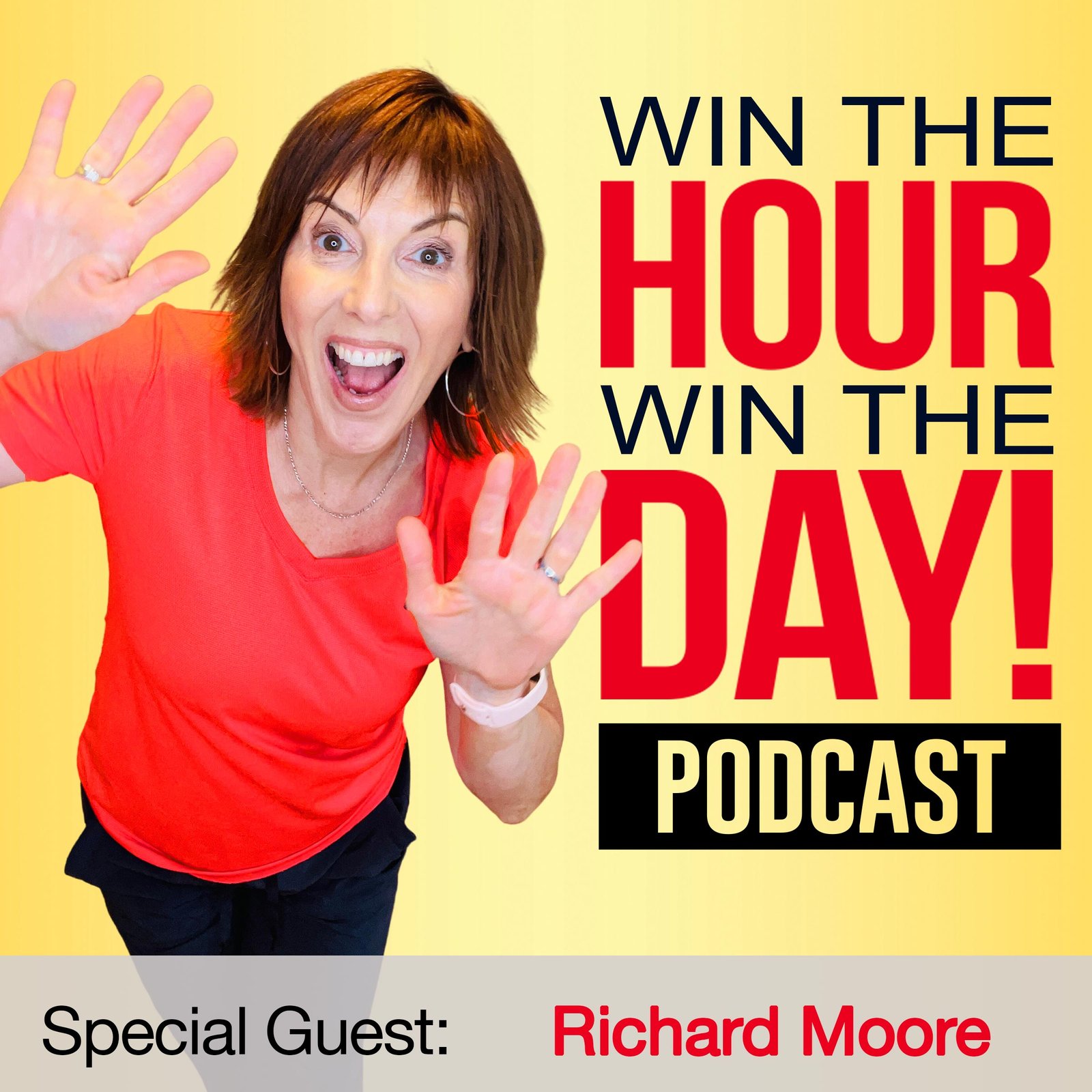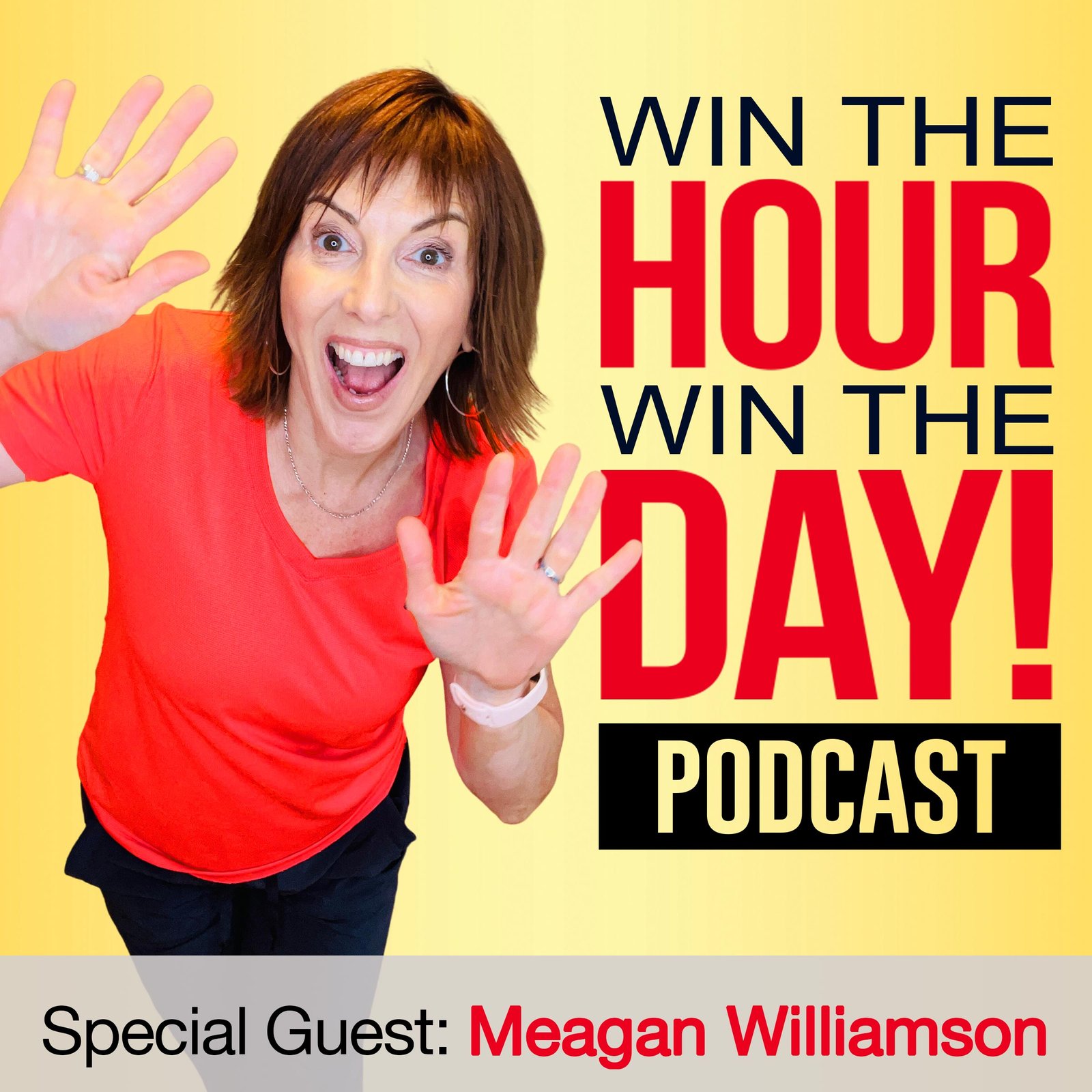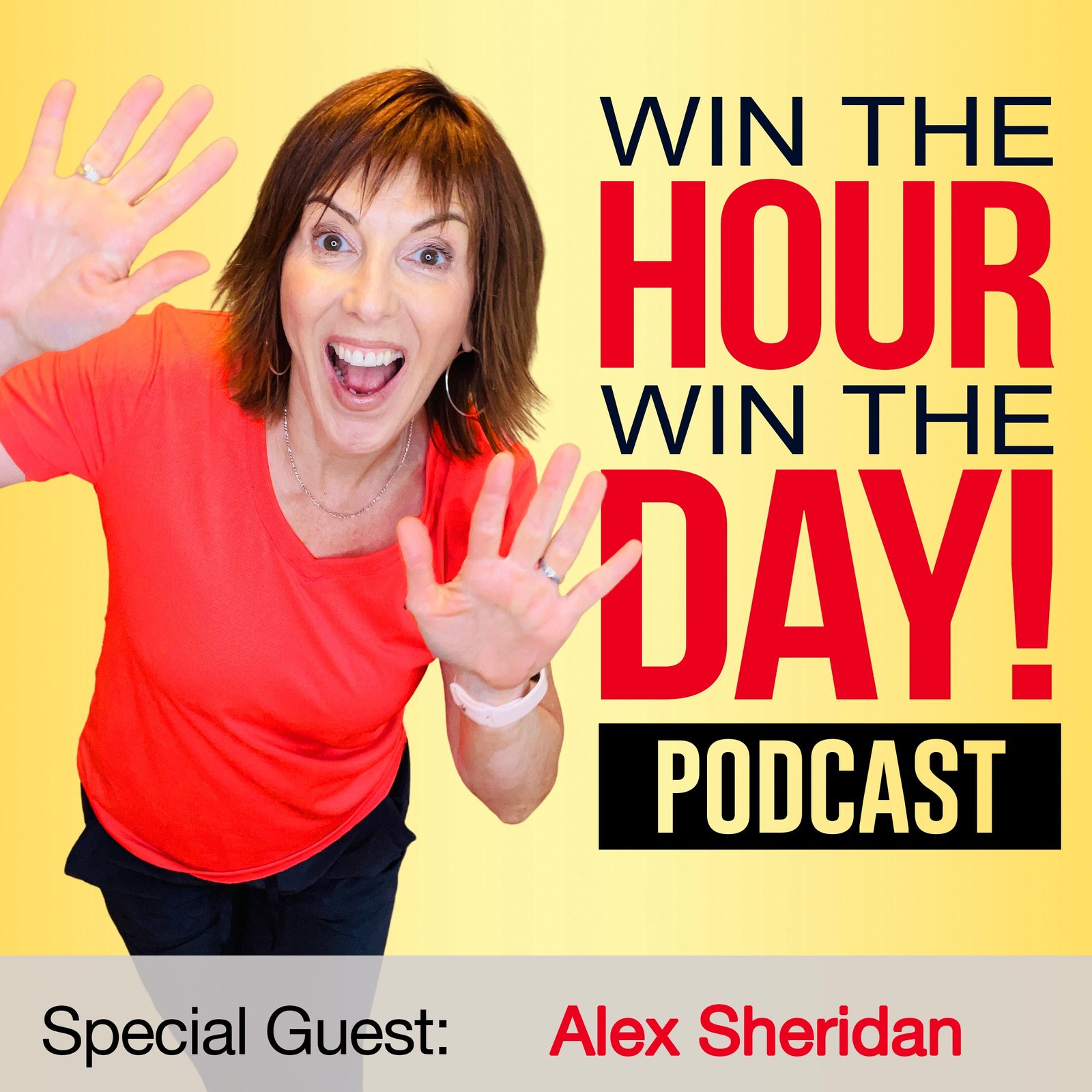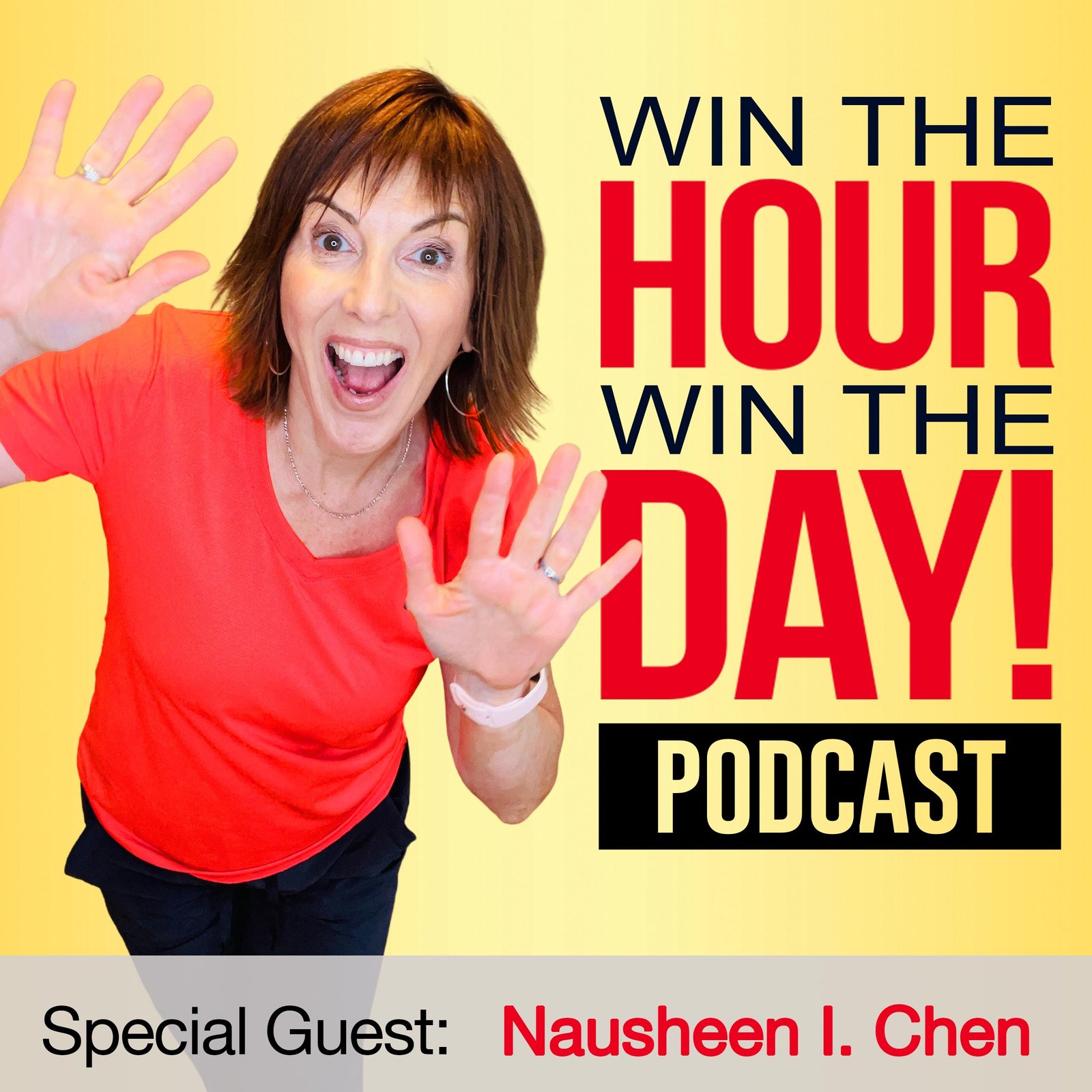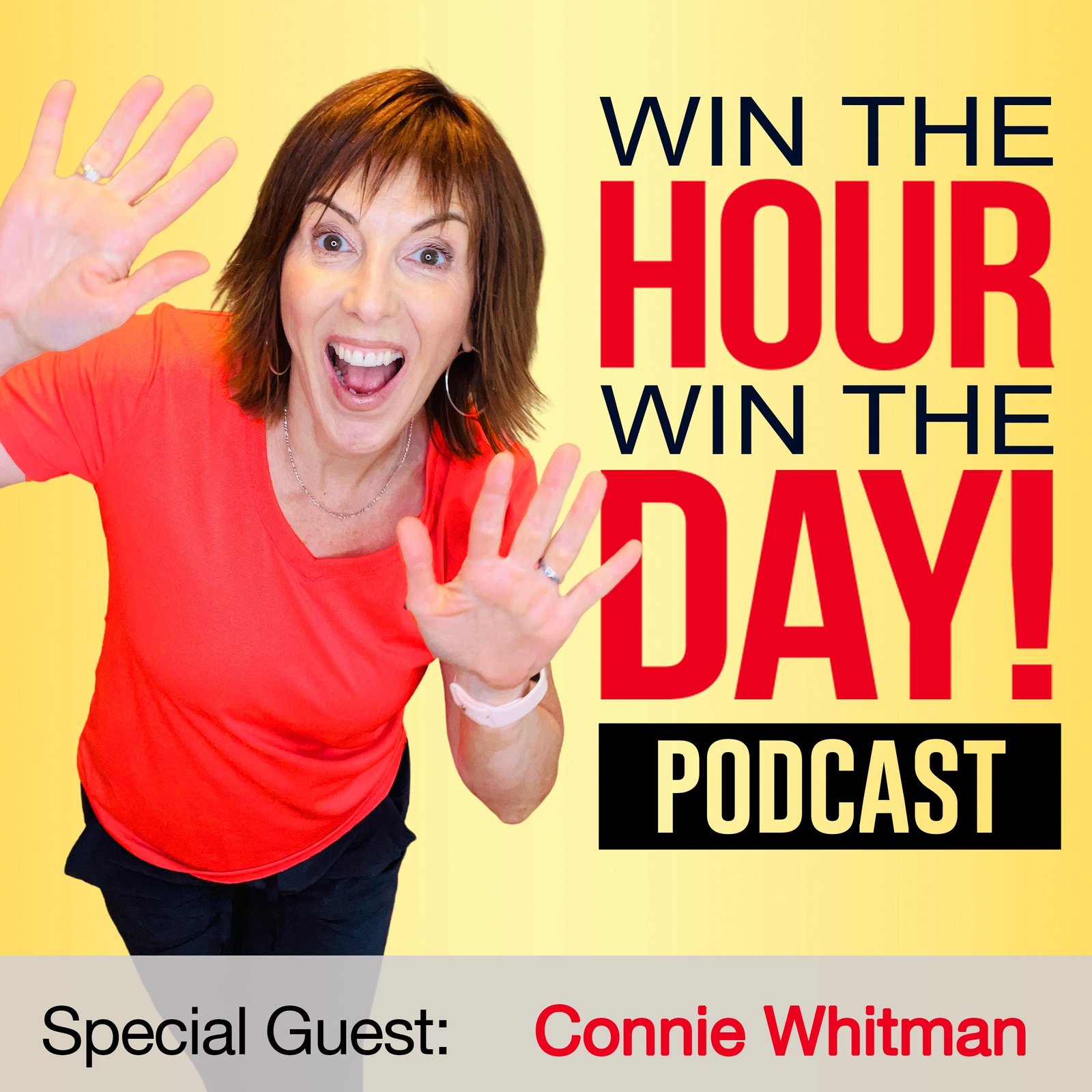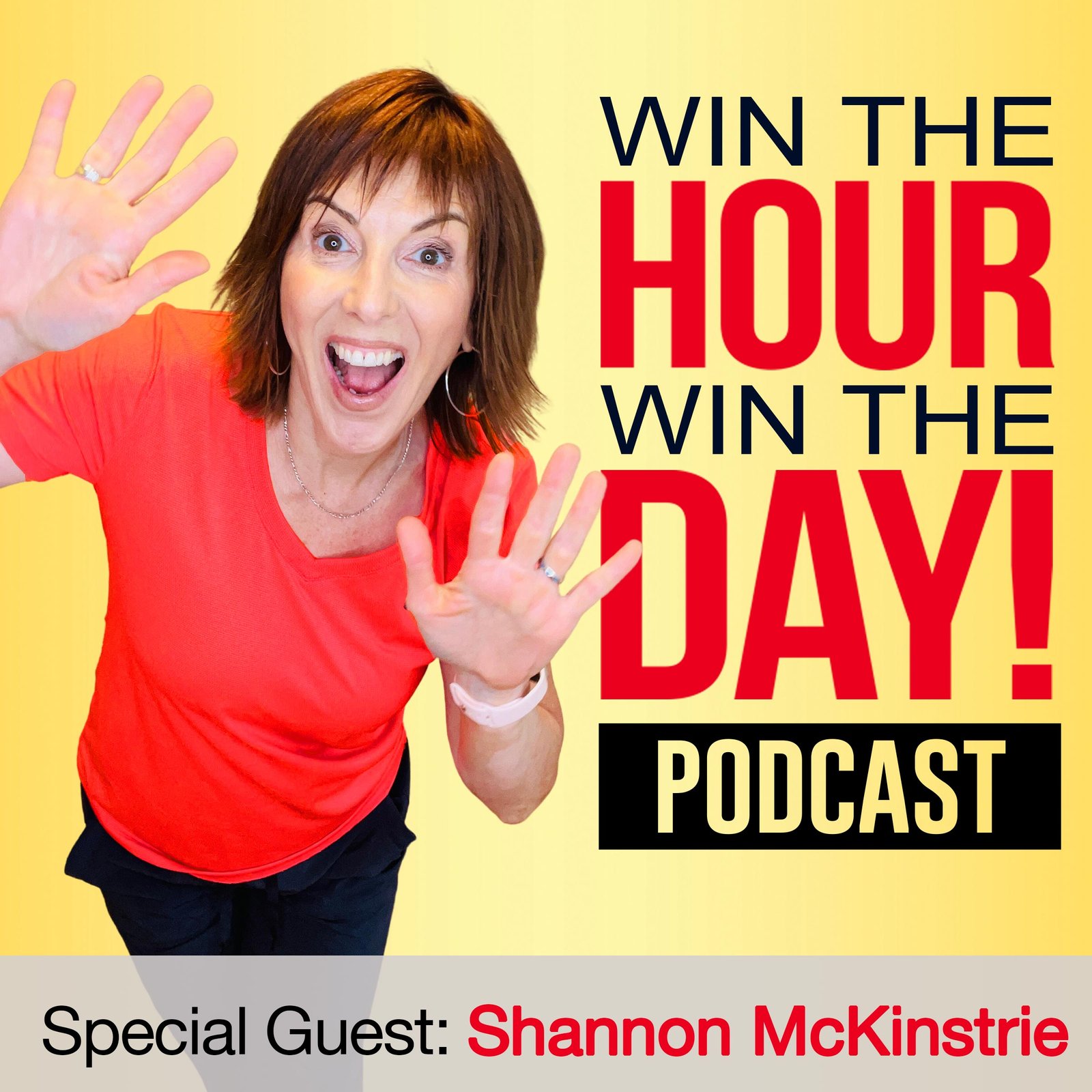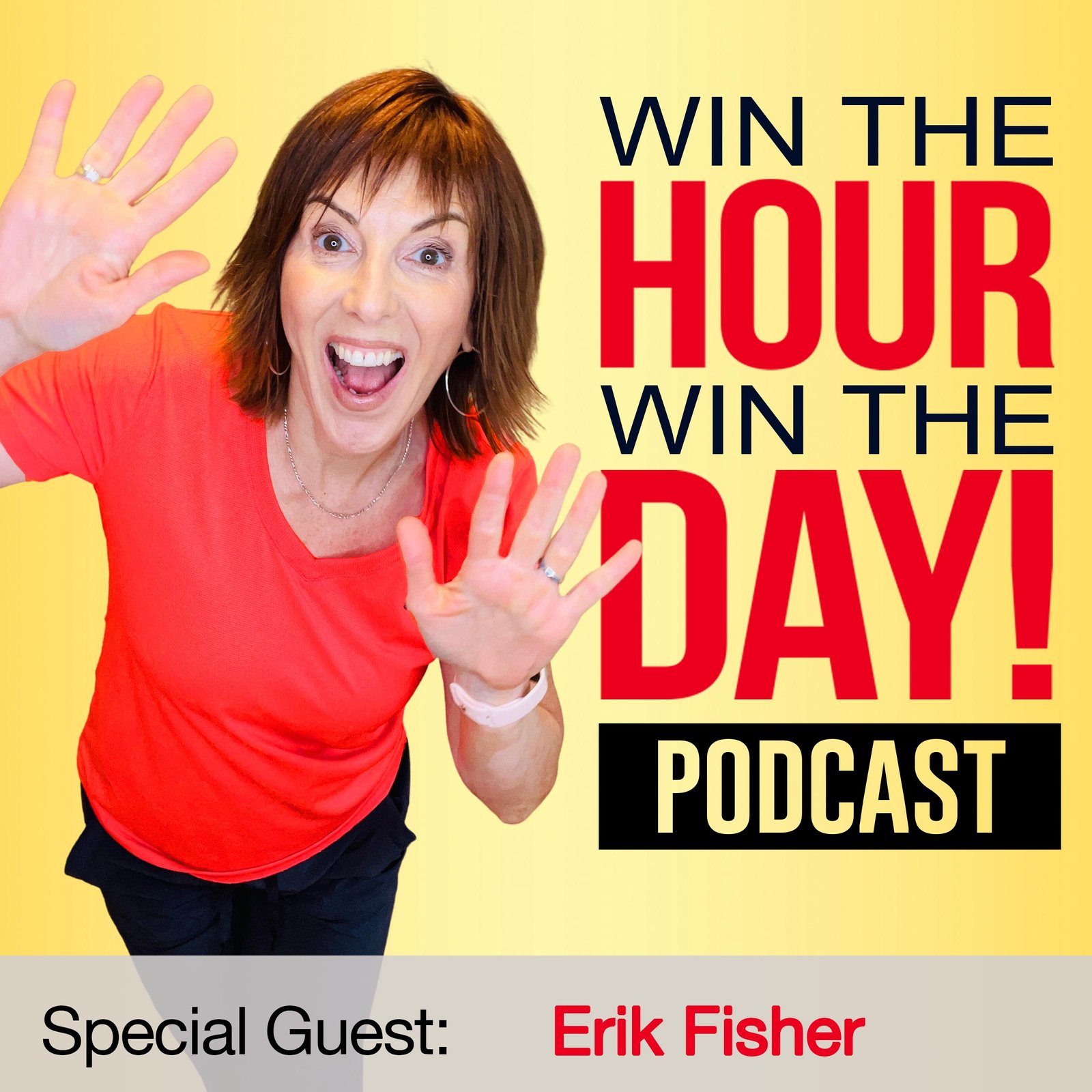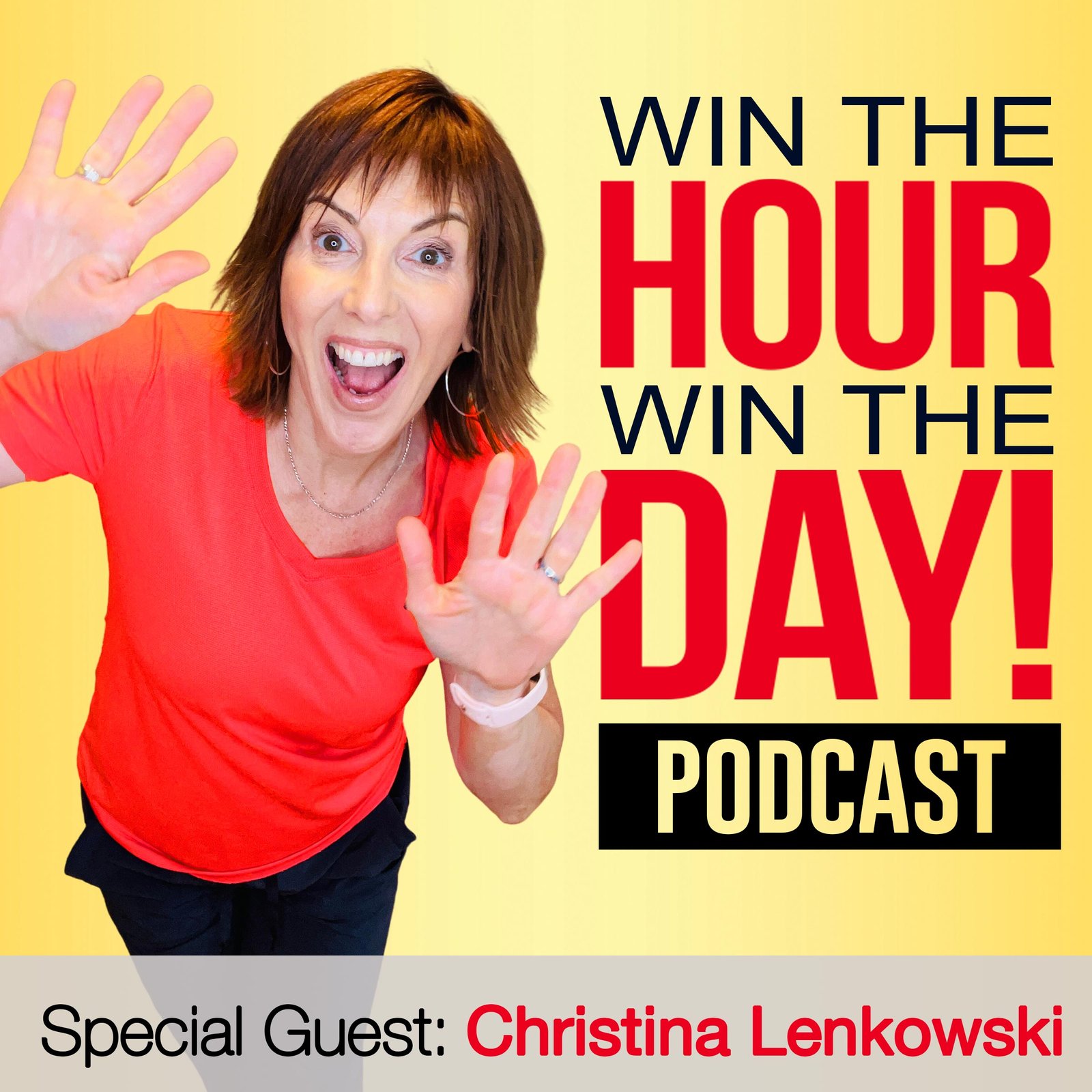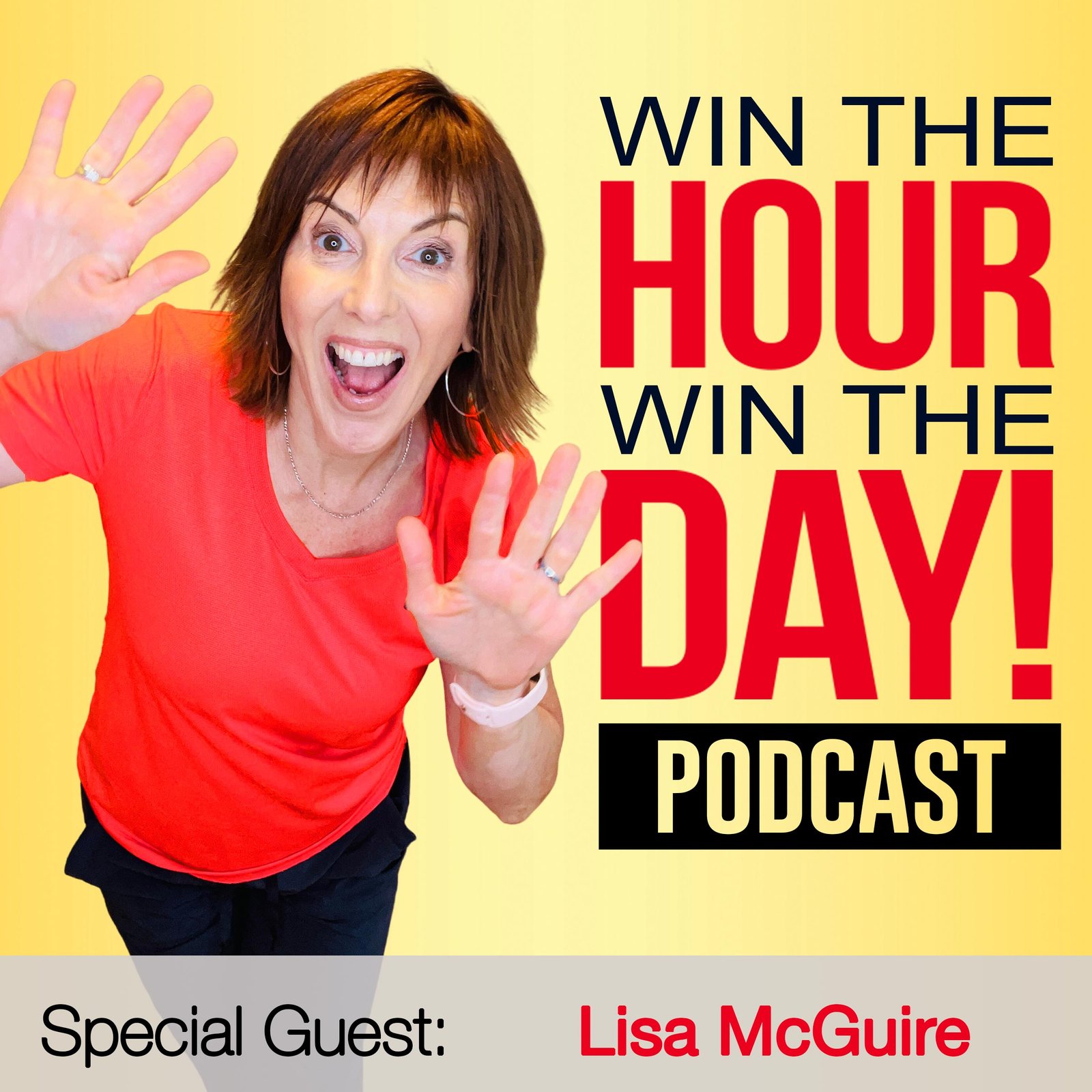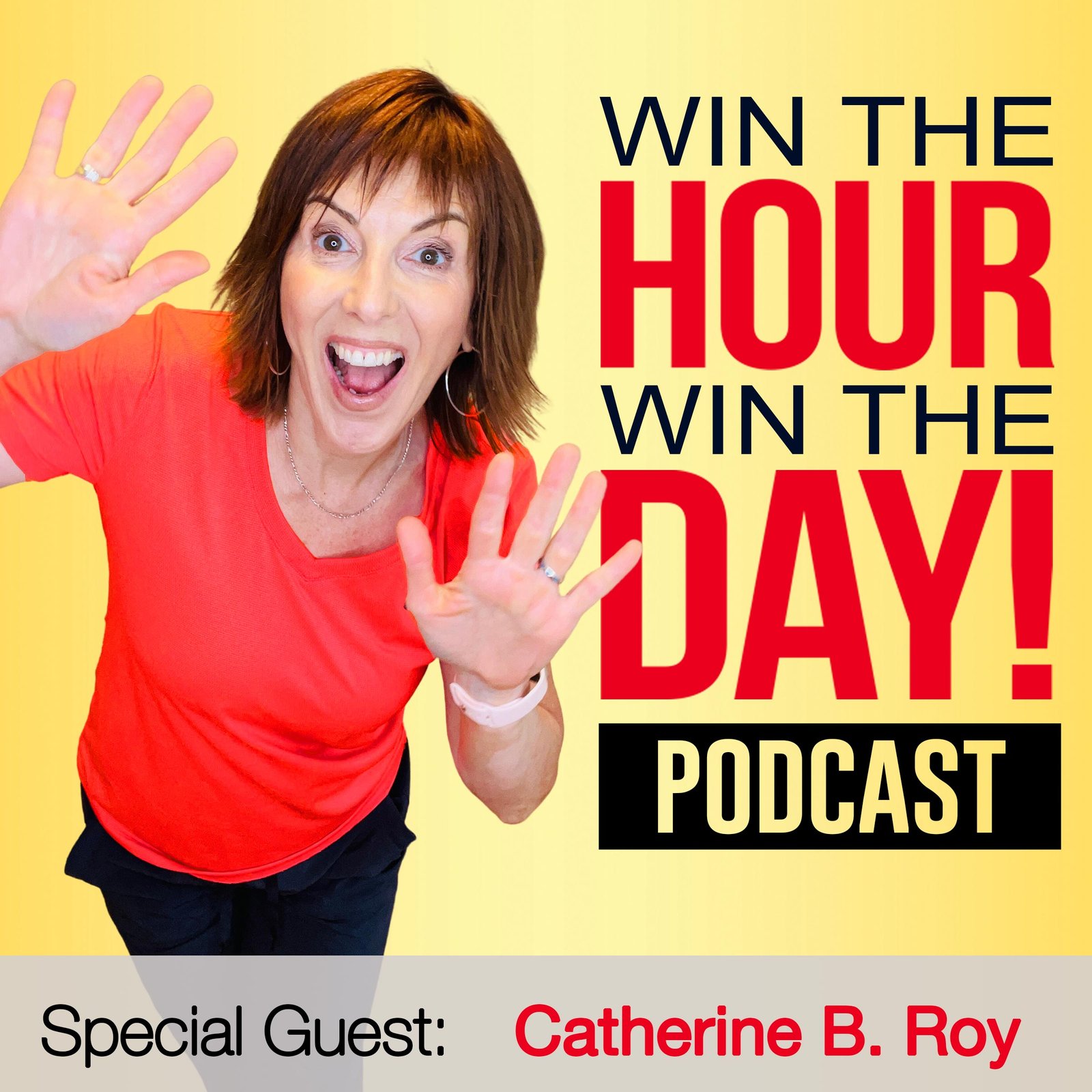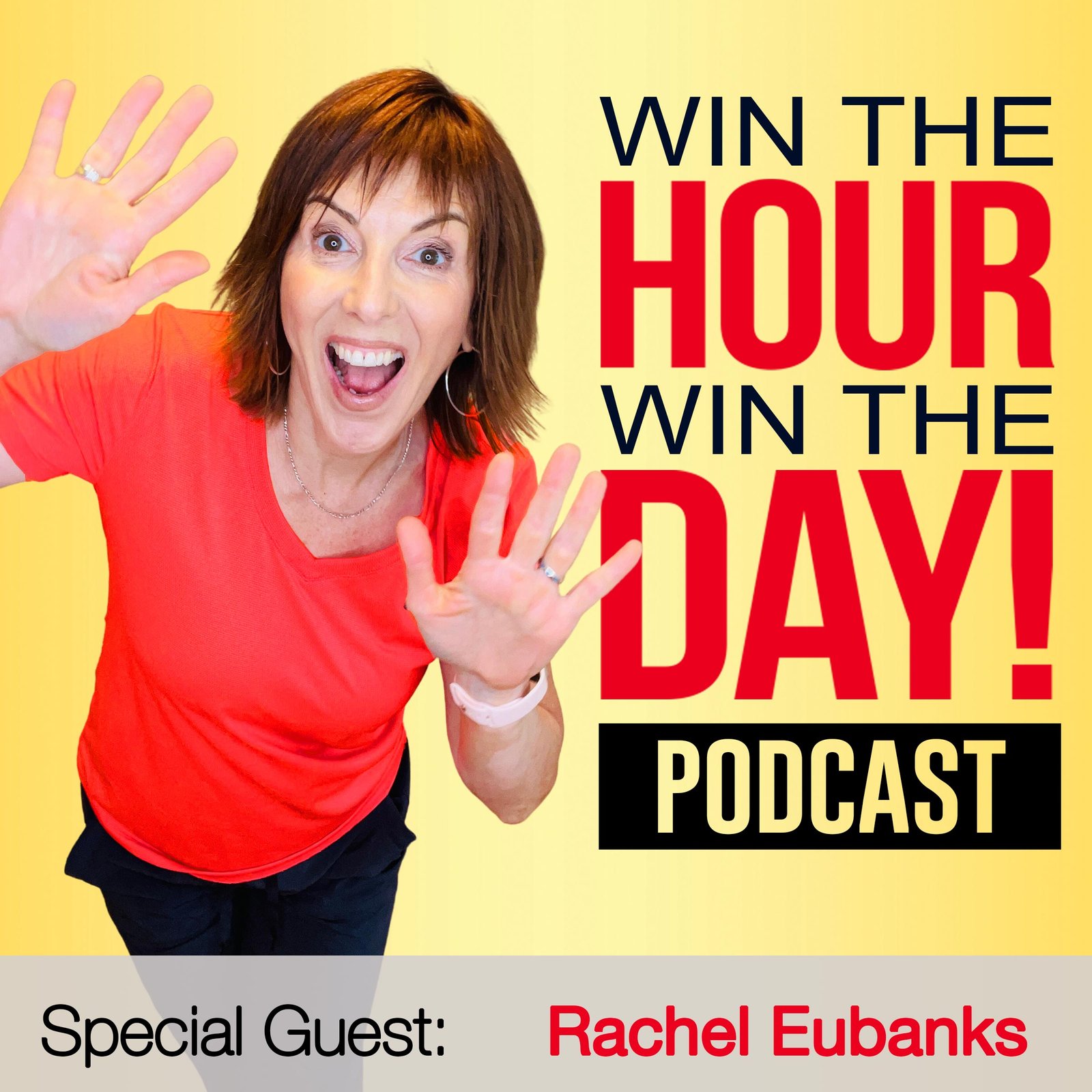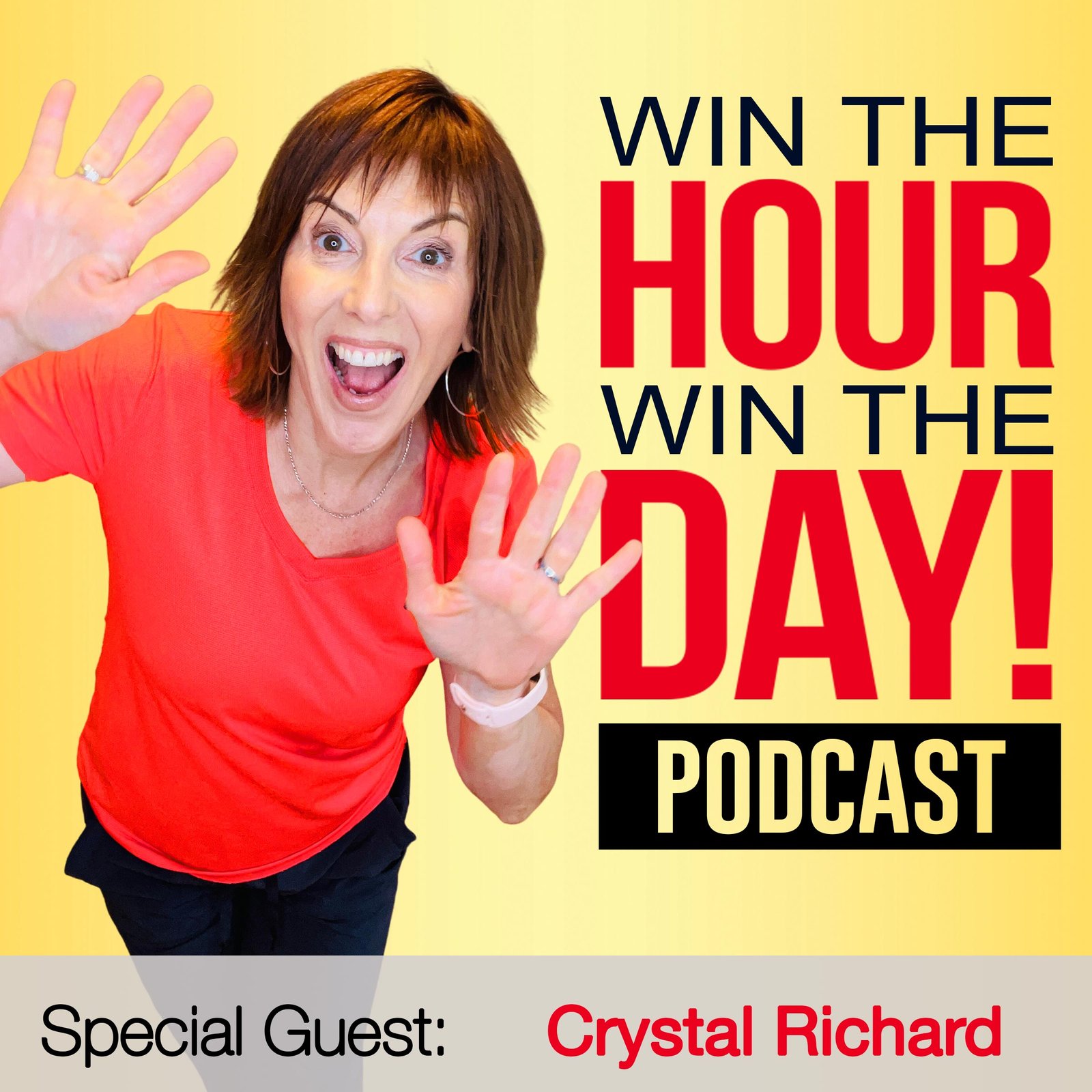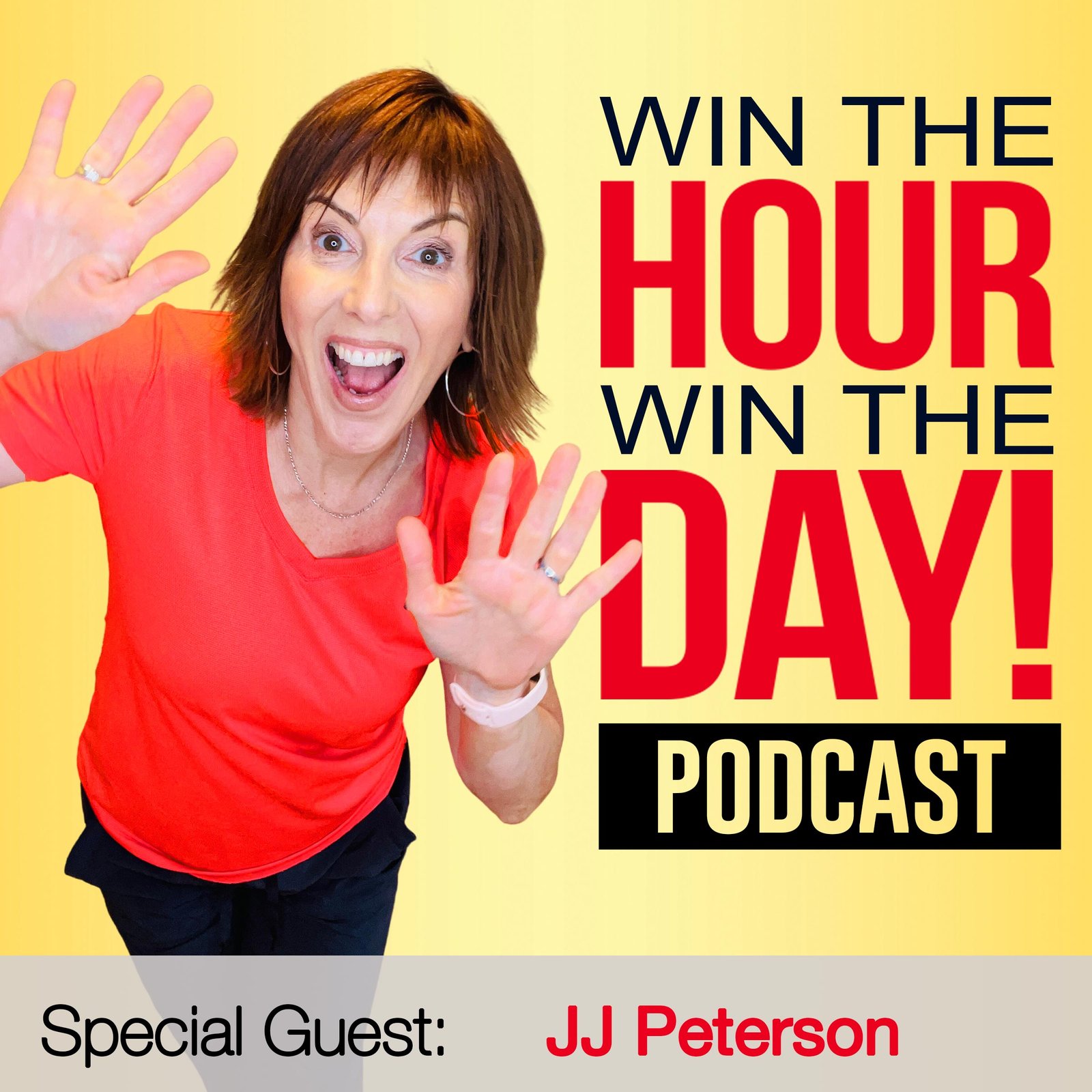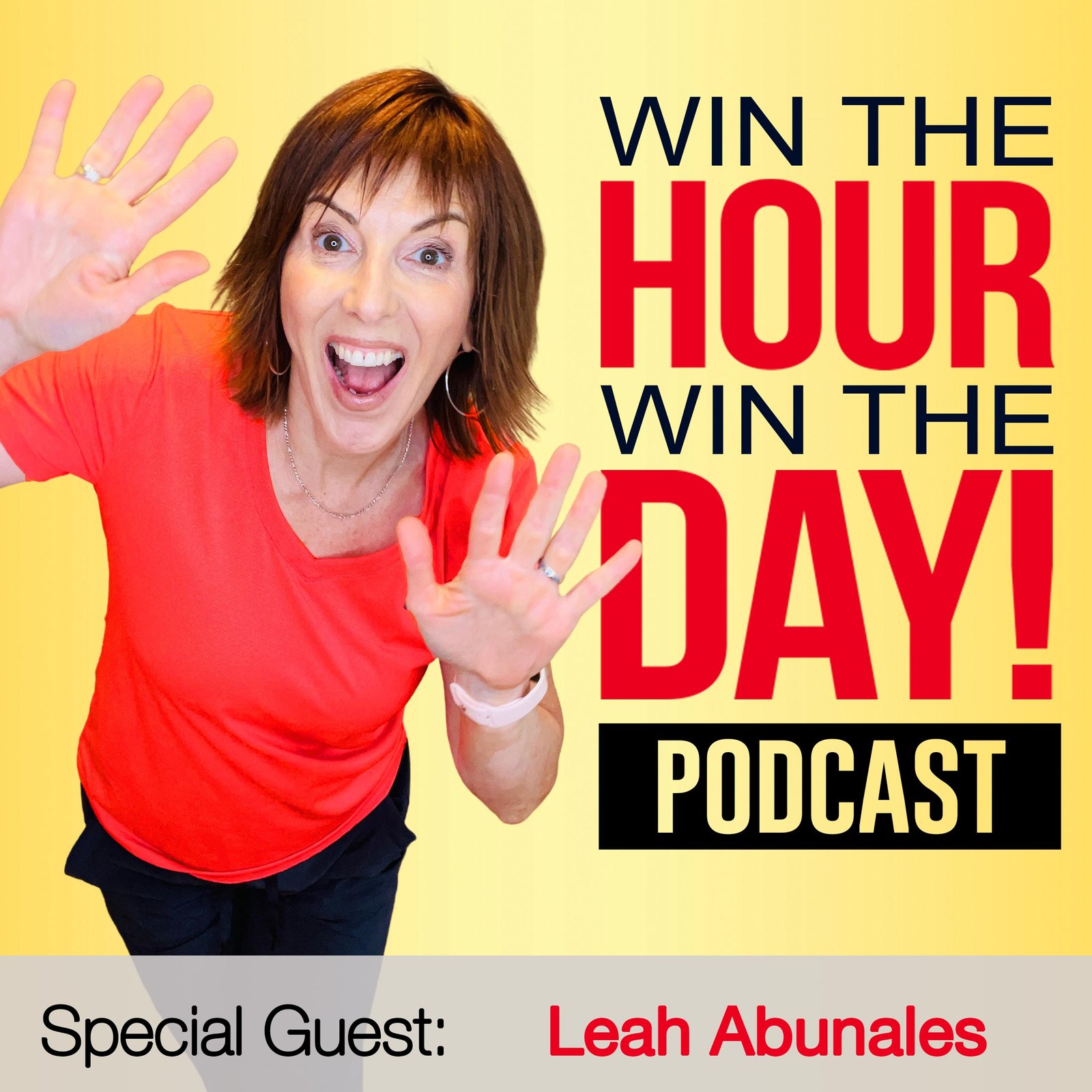Episode Summary This week’s episode of Win The Hour, Win The Day Podcast is...
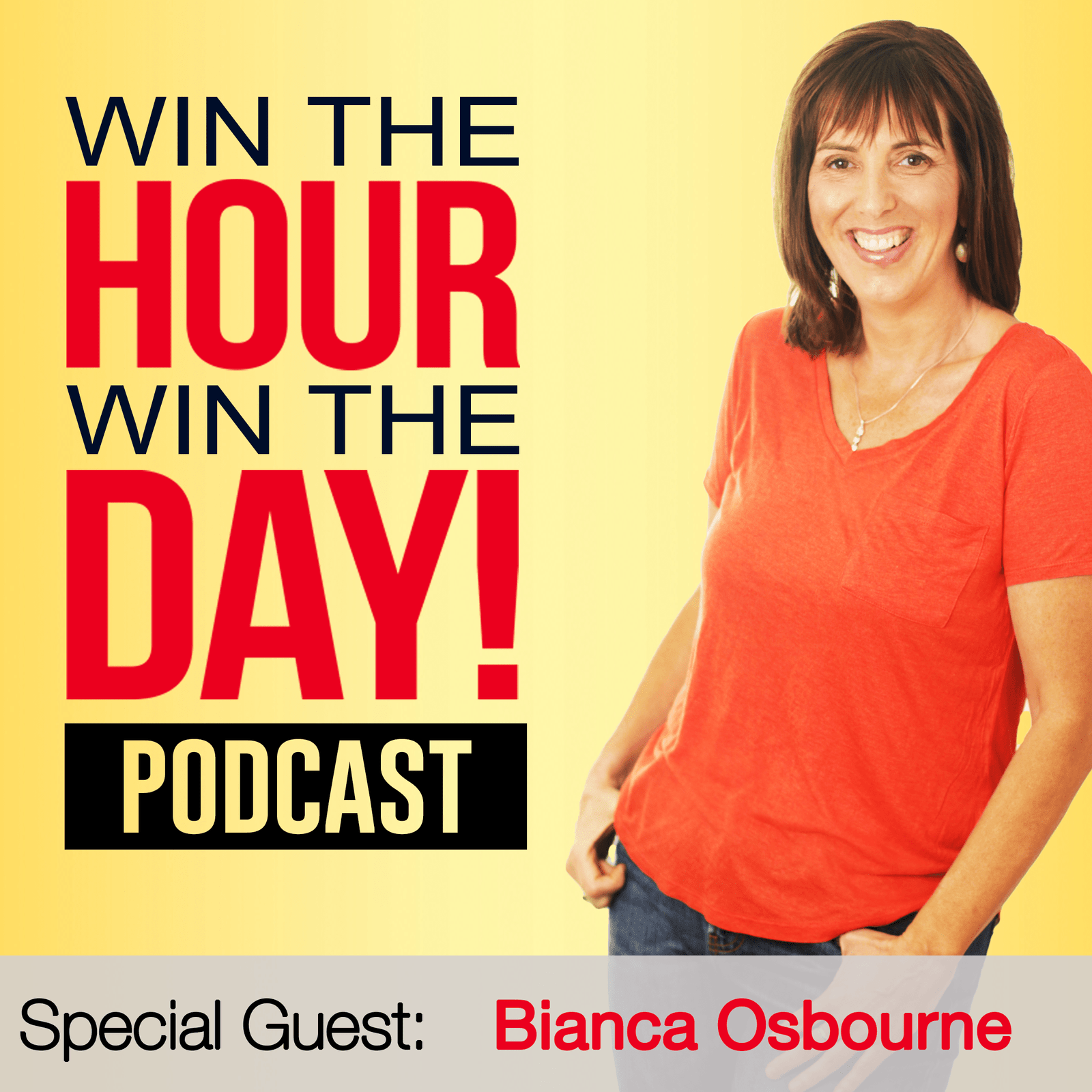
Are You Ready For Your Next Big Win?
Know your entrepreneur personality and I’ll take it from there!
Recent Podcast Episodes
Preventing Burnout with Smart Work Tools! with Kris Ward
Episode Summary This week’s episode of Win The Hour, Win The Day Podcast is...
Master Social Selling: Heidi Medina’s Strategies for Engagement
Episode Summary This week’s episode of Win The Hour, Win The Day Podcast is...
Boost Productivity and Master Storytelling! with AmondaRose Igoe
Episode Summary This week’s episode of Win The Hour, Win The Day Podcast is...
Master Video Marketing: Top Tips for Entrepreneurs with Dan Bennett
Episode Summary This week’s episode of Win The Hour, Win The Day Podcast is...
Boost Your LinkedIn Strategy with AI Tools for Enhanced Productivity! with Joe Apfelbaum
Episode Summary This week’s episode of Win The Hour, Win The Day Podcast is...
Mastering Personal Branding with NLP Techniques! with Olesija Saue
Episode Summary This week’s episode of Win The Hour, Win The Day Podcast is...
Innovative Lead Generation and Email Automation Secrets with Jennie Wright
Episode Summary This week’s episode of Win The Hour, Win The Day Podcast is...
PR Strategies for Diverse Entrepreneurial Impact! with Jennifer Singh
Episode Summary This week’s episode of Win The Hour, Win The Day Podcast is...
Convert More Clients on LinkedIn with Richard Moore
Episode Summary This week’s episode of Win The Hour, Win The Day Podcast is...
Master Business Growth on Pinterest with Meagan Williamson
Episode Summary This week’s episode of Win The Hour, Win The Day Podcast is...
24/7 Sales Boost: Video Marketing Secrets with Alex Sheridan
Episode Summary This week’s episode of Win The Hour, Win The Day Podcast is...
Master Public Speaking Tips with Nausheen Chen!
Episode Summary This week’s episode of Win The Hour, Win The Day Podcast is...
Beating The Burnout With Connie Whitman’s Success Story
Episode Summary This week’s episode of Win The Hour, Win The Day Podcast interviews,...
Craft Your Social Media Content Strategy With Shannon McKinstrie
Episode Summary This week’s episode of Win The Hour, Win The Day Podcast is...
Boost Your Productivity with AI Tools: A Deep Dive with Erik Fisher
Episode Summary This week’s episode of Win The Hour, Win The Day Podcast is...
Boost Visibility: Repurpose Content and Leverage Podcasts With Christina Lenkowski
Episode Summary This week’s episode of Win The Hour, Win The Day Podcast is...
Master Personal Branding & Storytelling with Lisa McGuire
Episode Summary This week’s episode of Win The Hour, Win The Day Podcast is...
Boost Business on LinkedIn with Catherine B. Roy’s Strategies
Episode Summary This week’s episode of Win The Hour, Win The Day Podcast is...
Scale Your Business: Optimizing Virtual Assistant Services with Kris Ward & Rachel Eubanks
Episode Summary This week’s episode of Win The Hour, Win The Day Podcast is...
Affordable PR Mastery: Crystal Richard Unveils Modern Techniques
Episode Summary This week’s episode of Win The Hour, Win The Day Podcast is...
Mastering Business Storytelling with JJ Peterson’s Guide
Episode Summary This week’s episode of Win The Hour, Win The Day Podcast is...
Revamp Your About Page: Guide to Personal Branding
Episode Summary This week’s episode of Win The Hour, Win The Day Podcast is...
LinkedIn Mastery and Video Marketing Secrets with Alex Sheridan
Episode Summary This week’s episode of Win The Hour, Win The Day Podcast interviews,...
The Systems and Processes Playbook: Insider Secrets to Streamlining Your Small Business with Leah Abunales
Episode Summary This week’s episode of Win The Hour, Win The Day Podcast interviews,...
Present As An Expert On Camera! with Bianca Osbourne
Episode Summary
Bianca Osbourne schools us how to be an expert on camera. Tune in as she walks us through some things that can make or break your video (and it’s not what you think).
Learn:
-why your mindset really matters in your video
– the simple aesthetic blunders you can avoid.
-how to engage instead of distracting with simple hand gestures
And so MUCH more!
You can find Bianca Osbourne at:
Website: https://biancaosbourne.com/
Email: bianca@biancaosbourne.com
LinkedIn: https://www.linkedin.com/in/biancaosbourne/
Instagram: https://www.instagram.com/bianca.osbourne/
Win The Hour Win The Day
https://winthehourwintheday.com
Bianca Osbourne Podcast
[00:12:37]Kris Ward: Hey, everyone. Welcome to another episode of Win The Hour, Win The Day and today in the house we have Bianca Osbourne. Bianca is going to talk to us about being an expert on camera. Bianca, welcome to the show.
[00:12:52]Bianca Osbourne: I am so excited to be here. This is a topic that I could wax poetic on for hours and hours.
[00:12:58]Kris Ward: Okay. Well, we’re all about diving right in and let’s get to it.
And so being an expert on camera. Okay. Where do you want us to start? What does that mean? What do you see people doing wrong? Cause I look at this and I think, all right, well, how bad could this be? Because we’re not… We’re not going to waste your time talking about camera confidence or anything.
[00:13:18] I know you people out there, friends, listeners, you’ve got your big boy and girl pants on, you know you need to do this, go out and be yourself, turn on the camera. So we’re going to start past that point. All right. Now that we’re past that. What do you think, Bianca? What do we need to know?
[00:13:34]Bianca Osbourne: Well, I think one of the things that is really, really important as someone who is stepping on camera, who was already an expert in their field, is you have to have the mindset of an expert.
[00:13:45] And that isn’t to say that offline you don’t. And even in some of your videos, you’re not asserting yourself constantly as an expert, but with video, you kind of have to put it on a little bit more in a sense, because you’re trying to draw people in and get them to believe you. Through a lens through a camera.
[00:14:03] You don’t have the opportunity to shake their hands, look them directly into their physical eye. And so your level of confidence on camera has to really shine through. And there’s a lot of things that speak for you before you even open your mouth, whether you have been doing video two days or whether you’ve been doing them two years and a lot of them are just body language, gestures that you might use.
[00:14:25] And so for instance, you see this a lot with people. And they use their hand gestures. I’m a hands gesture person right now. I do it all the time, whether I’m talking in person or on video, but I use my hand gestures to help me punctuate points. It isn’t a source of showing that I’m nervous or it’s not like a Twitch, because I think that can be confused.
[00:14:46] People are like, well, I overused gesture. Then it’s like, if you don’t overview gestures in a way that’s distracting and it actually helps you punctuate points and really exclamate things then use them continue to use them, use them as your seasonings to what you’re talking about.
[00:15:03]Kris Ward: Okay. That’s a really good point. So I do that. I visually show things with my hands, actually, as I’m talking, I’m showing her my hands showing her. So, I do that. I think I’ve always done that. Although I will tell you, I don’t know if this buys into it or not, but I’m fluent in sign language as well, but that actually makes what people think sign language is very different than visually showing something.
[00:15:26] But so it’s innate into describe visually. And I think it’s just, you’re right. Are really powerful way to amplify something you’re saying. But I did notice the other day I was watching somebody who was like an actor in an interview on TV or something. And, you know, there I was going to say, I don’t want to name them.
[00:15:45] What the hell am I celebrity with? They’re not going to listen to this show. So I was watching, who do I think I am, right. I’m so, oh, I’m so important. So I think it was the, I don’t even know his name, Tom something. I think the new Spiderman guy. I was flicking the channels. I was looking for something to watch and he was being interviewed and he kept slapping his leg constantly when he was talking and he lifted his hand up and slapped his leg.
[00:16:07] And it actually got loud and repetitive. And I was like, wow, like now I started to notice when the next time he slap his leg and I didn’t even care. I haven’t watched his movies and I’m just flicking the channels. So I guess that’s what you’re asking people to be mindful of.
[00:16:22]Bianca Osbourne: Yes exactly. Because that’s not helping him in any way. It’s more of a nervous Twitch for him. It’s probably like he’s going over what he’s saying in his head. And that’s kind of like how he starts. He just gets his leg. I don’t know what his process is, but that’s distracting from what he’s saying or distracting from what’s going on in that segment. Whereas if he was just using his hands to, like you said, amplify points, he was talking about, it would be a whole different conversation.
[00:16:47]Kris Ward: Okay. These are really good because I do think I have heard in the past sweeping comments where somebody would say, use your hands too much. Right. And they should be at your sides and open and all this stuff. But I think that if that was true, it may have been from somebody who then had distracting gestures versus somebody that’s amplifying a point.
[00:17:06] Okay. One moment, please. I want to interject your interjection. Take that Mrs. Parks, who told me to sit on my hand and grade five, because I use my hands too much when I talk, but anyhow, I’ve clearly let that go. So you go ahead, Bianca.
[00:17:25]Bianca Osbourne: That story was great. Yeah, take that Mrs. Parks and all the teachers who said the same thing to me.
I can’t even remember what I was going to say. Cause the Mrs. Park story got me, but yes. I think that when you’re talking about gestures, it’s always important to just see yourself on camera, to be able to identify what you’re doing. Often, these things happen unconsciously. We say words and filler words and things that we don’t even know we’re doing until we watch ourselves doing it.
[00:17:51] So I always encourage people to get on camera, just talk about anything and make note of the nonverbal things that they do, that they might be need to be mindful of.
[00:18:01]Kris Ward: And to be kind to yourself. I will tell you. And I say this humbly, I often sound smarter than I thought I did at the time. Like you walk away and you go, well, that was a dog’s breakfast.
[00:18:14] That was a hot mess, you know? And you’re like, oh, well, I’ll do better next time. Cause I’m all about moving forward and being positive. And then I will hear something back, like I’m on somebody else’s show or whatever. And you’re like, oh, those are some good points. And I cause you rushing through thoughts in your head, especially when you’re being interviewed.
[00:18:31] And so then I think things are coming out far more fumbled than they are, because I do have a quick speech. Right. And sometimes I’m not sure, you know, I talk quickly or you listen slowly. I don’t know what the disease is, but so also be kind to yourself. But also sometimes when you listen back, I mean, I still sit here, things that I overused.
[00:18:50] I spoke to you about this off air. You know, when I’m doing videos on YouTube, I often end up the end with all right. Like, what’s that about? Well, we just stopped talking Kris, right? So there are little ticks, but at the same time build on your strengths.
[00:19:04]Bianca Osbourne: Absolutely. And I also believe that we need to remember that we are bringing our content to life with us.
With ourselves. And so saying, you know, having like something cute, that’s like your thing, like the all right, or maybe a little giggle or something, don’t forget to keep you in your content. Some of these things are cute and they’re you, and they’re an identifiable thing and might differentiate your content.
But as long as it amplifies, punctuates, makes it more entertaining rather than distracts. That’s the distinction you wanna make.
[00:19:33]Kris Ward: Okay. That’s a good distinction. I know. And I’ve mentioned this before in the show. I know for a long time, when I had to go online and do videos that I thought that’s where you show up and you look professional and I confuse being personable is separate than being professional.
[00:19:48] So I would put shoulders back and sort of veneer it. And like, I don’t know, like, I don’t know what I thought I was doing in front of a boardroom of boring people. I don’t know. Cause I thought that the Kris that we’re talking to now is that somebody you get sort of on the fifth date, like after you’re working with me for awhile.
[00:20:05] Oh, Kris. Yeah. People tell me all the time. You’re high energy. You’re fun. That’s great. Thank you very much. But I thought that’s something that, you know, sort of, once we get into the relationship, you can unveil that. But when I just said, you know, nuts to that, and I went online. Okay, this is it. This is who I am.
[00:20:22] Take it or leave it. And those are my biggest compliments, but I fought that for years because I thought it came off maybe juvenile, not as professional, not as grown up or I don’t know what, right. So I think what you said was very salient. And I wish I had heard that many years ago, because what you’re saying is.
[00:20:40] There’s always going to be somebody out there that does something similar to you or a competitor or anything, but it’s you that breathes life into it. And we’ve all had that. We’ve all had where I’ve heard something 10 times, and then I heard it from somebody just the way they said it or their personality.
I’m like, oh, okay. Yeah. Okay. All right. I get it. I get it. So being you is an important ingredient.
[00:21:03]Bianca Osbourne: It’s the most important ingredient surely. And, you know, I work with sponsors and I do television on behalf of like brands. And the thing is that they give me the same package that they give another person that they have maybe doing radio, or maybe they’re doing different television shows.
[00:21:18] And I do it completely different than that other people that they’re giving the same content package too. And that’s really what they hire me to do is to bring it to life in my own way, because words are words, key messaging is key messaging. It’s really what we bring to it. That brings it to life.
[00:21:37]Kris Ward: Yeah. Yeah. Okay. I have so many thoughts in the back. I’m going to stop talking, let you go, keep going.
[00:21:44]Bianca Osbourne: Okay. The next thing that I was going to say is affirmations. And I think that for the longest time, and even to this day, affirmations are looked at really simply, you know, it’s like the: I am safe.
[00:21:55] I am secure, and those are great. I love those affirmations and they’re great places to start. But again, once we ascertain the gestures and maybe the distracting things that we do, one of the ways that we can help sort of shift that in us is through affirmation. And it can seem really woo when you’re thinking about it in like really abstract way.
[00:22:17] But truly if you are a person that fidgets and it’s kind of pacey when you’re doing speaking, wherever it is, maybe you paid before or maybe like, while you’re on screen, you’re kind of like fidgeting and moving around, you would make then an affirmation that affirms being like planted strongly, and delivering confidently or like being centered in yourself or however it would look for you.
[00:22:42] But that is how an affirmation can actually in the moment help you shift how you believe about something in your head and the more you do it, the more you’re likely to believe it. And this works for elite athletes who do this kind of thing. So it’s like, it works for them. It would work for us.
[00:22:58]Kris Ward: Yeah. Yeah, you’re right. Okay. I love when people come to the show and I tell them they’re right, it’s always good. Oh, let me tell you about how you and your area of expertise. You’re right. So I think what you’re saying, though, I hear you is like, I love, you know, stuff like that to affirmations, but it gets a woo name. And so what you’re saying is be kind to yourself and be purposeful before you start your video.
[00:23:21] And you can do that in a form of intention and affirmation versus not just nice things flow to me. You’re like, okay. Right. So we’re going to use the affirmation to say, you know what, I will speak confidently and proudly about my expertise, right. And just to ground yourself and not dig folk, not to be charging forward and what you see your weaknesses as.
[00:23:44]Bianca Osbourne: Yeah, exactly. And just realizing that it, I think there’s a rumor out there and it’s false that you’re either born good on camera or you’re not, and it’s just, you can learn to be excellent on video. You can learn to be excellent speaking in those like high anxiety situations. It really is just about sort of understanding the things that we have at our disposal to help us feel more calm as we’re doing it.
And affirmations are a great way to do it. Like even if you get butterflies, you can make something, an affirmation about using that energy powerful. I use the energy, like I’m fired up about what I do and I use that energy to
[00:24:23] speak confidently, whatever it looks like for you, but understanding what those things are and then positively affirming the opposite can be really powerful for making you not just confident on video, but just in life in general.
[00:24:36]Kris Ward: Yeah. Yeah, yeah. It can’t hurt you. All right. You talk also about nonverbal. Here’s one, everybody pay attention. Cause this sounds so small, but it’s so important. Are you looking to the camera? Oh, my heavens, you know how I feel about this one?
[00:24:56]Bianca Osbourne: Well, I think, and we live in a time that it is changed so much what we mean by looking into the camera or doing Zoom, Google Meet, Loom, like all these different things.
[00:25:05] In addition to filming television at home. I mean, I work on a national television show and we have been doing home segments for over two years. And so everything is different when we’re talking about like a camera lens, are you using a phone? Are you interacting with someone else? And so making eye contact matters because it’s our only opportunity, especially now to really connect in a sense, because you’re looking at the screen, but if I’m looking at the screen too, I‘m not looking in your eyes.
[00:25:34] And then that is a lost opportunity for me and for you to feel a connection to me. Similarly, when you’re talking, I look back at my screen so that I see you, and then I’m using the opportunity to connect. And I hope that you’re looking in the lens for that.
[00:25:48]Kris Ward: So let’s just break this down. So we’re really super clear. What Bianca and I see this all day long. So what happens is that we are talking about. I’m looking in the lens of my camera. When I do that in this suit. When you guys, if you go over online, you watch this on YouTube. It’s going to look like I’m looking right at you. When I look right into the camera right at you, I do not see Bianca. I see her out of the corner of my eye.
[00:26:17] Right. She’s there and you see us all do this, you know what’s happening people when they look like they’re looking down, they’re looking down at you on the video or they have caught up cause we’re all humanoids and you get cut up, you start fixing your hair, right. It happens. And I’m shocked because…
[00:26:36] I mean, I know I’ve been trained to do that and I, whatever, and I knew that and it’s like fine, but I see some really high end people come through and they’re not looking in the camera and or worse, I see them online and you can see them looking at themselves on the video, which is no excuse, because you should be able to stop that 32nd video and replay it.
[00:26:52] It’s not even like you got sucked into the interview and now you’re looking at the person, right. So. Like hear me now, people, it makes such a difference to the viewer. If you are not looking into the camera hole on that means you don’t get to check your hair and makeup and look at other people. Right. Or not makeup or men or makeup, let’s be generic.
[00:27:12]Bianca Osbourne: Everyone make it these days. I mean, some of us stopped wearing makeup, but that’s another story. But I do think that, you just want to make sure that you’re using this opportunity because we’re able to connect with each other, but you have to also resist the urge to look at yourself.
[00:27:30] And that’s hard because these screen type of deals we’ve been doing really makes us focus on how do I look? Do I look weird? Does my face look cropped? Like, am I well lit? Is my background good? And it’s so easy to get caught up in yourself, but people can tell when you’re looking at yourself. They absolutely can.
[00:27:48] And if you’re looking at the camera lens, then you really see nothing but everything in your periphery. And that is fine. And then again, you engage with your eyes when someone else is talking, but when you’re talking, you’re talking to the camera, which is essentially talking into someone’s eyes.
[00:28:05]Kris Ward: Yeah. And it does feel a little awkward at first because you’re not looking at someone like I’m looking into lens. I get nothing back. Like I’m looking to the little hole there, but it almost feels uncomfortable now. And I look down cause I know what it’s gonna look like when I see the replay. Right. It’s not, I’m just so surprised.
[00:28:20] And I know, this isn’t on the list, but I see this all the time. I’m just shocked where people don’t choose their background wisely. Like somebody wanting to be on my show and we were talking and I said, I’m sorry. Is this a background you would be using? She was like, yeah. Yeah. And I said, you look like you’re hiding from your government.
[00:28:40] Like you’re on the lamb. Yeah. Like you’re on the lamb. What’s going on? We can’t do this. Right. So I think the environment, I mean, it’s not all going to be posh. Listen. I was in situations where I had relocated from one part of Canada to another, and I was living in this cute little cottage and it was great till I would decide where it was going to land and settle and buy a house.
[00:29:02] So I had this teeny little wooden cottage that I, oh my gosh, I had to be so creative because you could see the kitchen behind me. So I get it. It’s not like we’re saying you have to have a big Manch and all this fancy stuff, but you have to have some corner with some lighting set up and you just can’t be Willy nilly about it.
[00:29:20]Bianca Osbourne: Well, and that’s the thing. Lighting and sound will kill you every single time. If your frame isn’t good, it will distract away. And it’s not about being bougie or posh or judging anyone, but it’s like, you want people to focus on you and what’s coming out of your mouth. If your background is distracting,
[00:29:38] they’re paying attention to like, oh my God, it’s so messy behind there. Or what does that background like? They didn’t tidy up. I’ve seen that so many times where it’s like, you need it to tidy up because that’s just professionalism. But that being said, if they can’t see you, if you have a beautiful background, but you’re poorly lit, that’s also exceptionally distracting.
[00:29:57] And then if your sound is off. Then, I mean, they can’t even hear what you’re saying. So it’s like, all of those tech elements are really easy to resolve, but they matter so, so, so much in differentiating you as just someone who makes videos and as an expert.
[00:30:10]Kris Ward: Yeah. That lighting is your friend, lighting is everything. It just makes the production look so cheap when it’s not done properly, as well as sound like, you know, you can get away with it if you’re like, I don’t know. You know, Jeff Bezos calling in to do an interview. If he did that on the phone in a tunnel, I’d be like, it’s okay. His phone is choppy because that’s him and he’s in the boat somewhere in the south.
[00:30:33] Right. Fine. But when you’re a regular person, you have to show up with quality sound. Cause sometimes I’ll listen to a podcast and somebody’s reached out and they want me to be on it and then I’ll listen to their show and they sound like the recording. That’s so tinny and cheap in their bathroom. Yeah. And it doesn’t mean that I spend a lot more in my mic than they did, although I did spend a fair bit, but you, you can get a good sound for a low price, but what happens then is it’s like, oh, they sound like a rookie.
[00:30:59] I’m like, oh, well, how long has that show been on? Right.
[00:31:02]Bianca Osbourne: Yeah. Especially if it’s the host.Oh this is rough. You don’t seem really invested in and that’s really it. Like, especially if you are making videos with the purpose of converting people into programs or coaching. You want them to believe that you are investing in yourself and in this business because you want them to invest in what you have to offer. So it kind of has to like give the same vibe.
[00:31:29]Kris Ward: So now let’s pack up for a minute and talk about intros. I’m sure there’s lots of ways we can do that wrong. Whatshould we be thinking about when we do intros?
[00:31:39]Bianca Osbourne: Well, an intro is really what sets the tone for what people are going to get out of the videos that you’re making. And regardless of whether, and I, again, I make YouTube videos. I do videos for clients. I do videos on national television. All of them. You always have to have an intro because people want to know, and you should tell them within 30 seconds, what they’re learning, why they’re here, what they’re going to get out of it also, who you are, you know, introducing yourself.
[00:32:05] Because that also matters in terms of like, whether people stay to listen or not. It’s like, ‘Hey, I’m a plumber. I’m showing you this recipe.’ People might not stay past that 30 seconds, but if it’s like, ‘Hey, I’m Bianca, I was born, I’m a chef, which I am and say, I’m going to be teaching you how to make vegan tacos that you can make tonight because they’re so easy.’
[00:32:21] That is an intro that tells you who I am, why you should listen to me and what you’re going to get out of this next video. And that is what a really great intro does. It should be less than 30 seconds, ideally less than 20 and be clear and concise, but also entice people to want to listen further because you’re gonna be teaching them something great.
[00:32:41]Kris Ward: Yes. And you know what helps me keep, sort of keeps me in the right path and sobers me up with that one is when you’re doing yourself, you have so much, you want to say in the intro because you want people to understand, like for us to, you know, I might say, ‘Hey, I’m KrisWard from Win The Hour, Win The Day, and you don’t need to be grinding it out.
[00:32:56] I believe a business should be supporting your life instead of consuming it. And let me tell you, blah, blah, blah, it would be so easy to go down that path. Right, because you’re like, I want you to understand what, like, why this matters, but when I’m flicking on YouTube and I’m looking up for something like the other day, I was like, oh, I just couldn’t clean my glasses properly or something.
[00:33:14] Or I was learning another recipe. I wanted to know how to replace this thing for another. I want within seconds. I don’t want to hear about their business. I want them to get to it. And then I realize, oh, when I’m the viewer, all of a sudden 30 seconds feels like a really long time, but when I’m the presenter, I’m like, listen, I have, I really need you to know this.
Right. So I find that when I’m watching other YouTube videos, it helps remind me what, you know, like, listen, get to it, Kris. Enough.
[00:33:44]Bianca Osbourne: Well, I think we, I mean, I think we’ve all read a blog or something where the preamble is so long. It’s like, come on, get to the meat of the content here. That’s what I came for.
[00:33:55] And so I always say, say your intro and get to it. I believe in weaving and storytelling and anecdotes and all of the things that really pepper content with interests, but you don’t start like that. You start with giving the people what they want, getting them trusting you because you’re like dropping gems.
[00:34:11] And then you say, I know this because I’m an on-camera coach. And with my clients, I do this. And then another tip. And then this is something that I do in my 10 day bootcamp. So it’s not like you’re just starting with like all the things I have to offer, all of these things it’s, ‘Hey, this is what you’re going to get.’
[00:34:27] This is why you should pay attention, making it about them. Cause when we ramble about all we offer, that’s really about us. And so we make it about them. We make it short, sweet to the point what you’re going to get at the end of this. And then you deliver that. And within that, then you also promote yourself. Cause this is business.
[00:34:41]Kris Ward: Right. So you bring up a good point. Like if I’m doing a video on the top three mistakes people make when hiring someone right. Then if I can’t hook them on that, my rambling in the beginning, isn’t going to do it anyhow. So I have no chance. So if I can’t get them with what the hook is, it is then they’ve moved on anyhow and now rambling before the hook is a double annoyance. So it’s not working. So let it go. Right.
[00:35:09]Bianca Osbourne: Yeah. And we have to resist the urge to pontificate because that is for us because it makes us feel good to share all these things. And yes, we should be sharing because we have solutions to people’s problems, but we have to make sure that we share it in a way that they’re going to receive
[00:35:25] best and how you do that as you sandwich it in with the value that you’re delivering and off the top, the value that you need to deliver is telling them what they should expect and what they can expect, and whether this is the video for them. Because for some people they might opt out and be like, this is not what I wanted to learn.
[00:35:41] And for other people, it is exactly what they wanted to learn. All of them will be upset if they wait two minutes into the preamble and it’s not what they wanted. So just tell them what is.
[00:35:50]Kris Ward: Okay. So you’re out there. Throw us a couple of the things that you just see that are done wrong, more often than not?
[00:35:58]Bianca Osbourne: I think, no, I know this one. People come to the table and they try to be something that they think people want to see. Like they think this is what makes a good video. This is what makes a good on-camera personality. And they’re robotic and a bit choppy and not themselves. And that reads in authenticity. And the thing about video, as opposed to texts, even podcasts in some cases is that it will automatically tell on you if you’re not being yourself, if you are giving a fake energy.
[00:36:29] And so I say to people, take stock of what you talk about, go research, what other people are doing and not for the purpose of copying, but to see how does what I bring to the table and my uniqueness change the conversation or add to the conversation that people are having about this topic, and then go make videos with that energy, as opposed to trying to be like what other people are doing or fall within the mold.
[00:36:51] What is the mold? The mold is stupid. We should all be breaking the mold. And so being yourself and finding a way to bring a new perspective to what can be very similar content across the board is what I see people missing the mark on, and then what ends up happening is that their videos aren’t getting the traction that they want and the feedback that they want.
[00:37:10] So they quit because they feel like, well, video doesn’t work. Well, it’s like, no, you’re just not doing video in a way that is honoring you and presenting you to the people.
[00:37:18]Kris Ward: Yeah. So I kind of, I don’t like that word. I’m not saying you, but I don’t like the word authentic. So I always feel like nobody would plan to be inauthentic, but I think what happens is you have this perceived idea of whatever it is, a professional.
[00:37:34] And as I said earlier, like, oh, I thought we’ll make mine more veneer. And I know. Julie’s Stone. She’s a spectacular marketer and she is very quiet in her presentation. She talks about marketing copy and stuff, and I’ve watched her videos and taken some training with her personally and all that stuff.
[00:37:50] And she’s just so grounded and she just sounds so smart and everything she says is tight. And it’s like, oh, like there’s no fluff, but it’s really at a certain calm level. Right. And I’m like, oh, when I grow up, I want to be like that. I heard her complaining like, oh, I know I’m never going on camera because I’m not very animated.
[00:38:09] It’s very boring. And I thought, oh no, she just seemed like a, just consistent to me where I feel like, oh, I’m all over the place. But that was the thing I thought, oh, that’s what a grownup looks like. Or that’s when you look like when you sound smart. Cause she’s smart to me. Cause she’s teaching all these things and then I get complimented all the time for my energy.
[00:38:28] It’s like, she’s saying, oh, I wish I was more animated on the screen. So, the thing is we’re watching other people. We may like them for their special sauce but you don’t see the validity in your own special sauce. So I think you it’s really easy to get confused and start chasing your tail going
[00:38:48] oh, because she sounds so smart. I’d like to be like that. Right, but just be you. I know it sounds ridiculous, but it just took me a long time. I wasn’t being a different person, but there’s different versions of you, right. Clearly who you are as a professional, who I am as a professional is very different than who I was with my grandmother.
[00:39:05] You know what I mean? So, you get like that woman, boss me all over the place, right. Actually I was 12. So, but you get confused. So it’s not about being inauthentic. It’s just. You know what stop looking. I think here’s a lecture for me. I’m talking to myself, not to people, but stop looking at other people, just stop looking at other people and be you.
[00:39:28]Bianca Osbourne: Yes especially, I will say like at the top of 2018, which was when I went from being like a private chef in Toronto to starting to being like a media person and being on TV and doing all of that. At the top of 2018, I was just like, I’m so tired of trying to do this and chase this media dream that I have for myself.
[00:39:47] Doing it like other people, what I get with small little stupid opportunities, they felt stupid at the time, but they weren’t. But I was saying this to myself. When I get these small little opportunities, it feels like so much harder because I’m doing it outside of what I would naturally do. I’m talking differently than I would naturally talk.
[00:40:05] So I was like, you know what, I’m just going to do it my way. And that was one things really started to shift as far as the opportunities I was getting and people being really interested in like what I had to say and how I had to say. I say when I just started doing it my way. So I always encourage people to find your voice because even if you think it has no value or like I’m not mature enough, or who am I to talk about it, it’s like, you’re you, you will bring a whole new perspective to it. You just have to be you. That’s what changes things.
[00:40:31]Kris Ward Yeah. And you hear that too. If you’re listening to an interview or another podcast and you can hear people, whether they be celebrities or heaven help me, I’m ashamed to tell the world I am so deep into formula one now. Watch, I think everyone is, but I’m watching now.
[00:40:46] I’m watching. It’s not just the Netflix documentary. I am like deep into it, but anyhow, what I find really interesting about the athletes of the drivers is you can see ones who give, who are themselves and give a really good interview and more honest answer. And then there’s ones that are polished and got sound bites and they save the right things every time it’s like, yeah.
[00:41:04] Yeah. I don’t have to listen to that one. Cause I know what he’s going to say. It’s like, I used to make fun of my husband, watching hockey. Yes. Strong on defense. It’s a team effort. Like they were all scrapped hockey players had these formulas. Right. And you’re like, oh, wow. Guess what? Strong on defense.
Right. And I didn’t know anything about hockey, but I could recite that. So it doesn’t make it interesting. That’s for sure.
[00:41:25]Bianca Osbourne: And that’s really what this is about and how you stand out, because if you’re trying to do it like anyone else, you’re just going to be a second rate version. And I know that that’s what you hear that said a lot, but it’s just factual. Through them.
[00:41:36] People say it all the time. Because it’s true. And if you just start really trying to be your best you and I also just want to mention too, that like you have to take care of yourself in order to find your voice and really be someone using, being on camera. You have to sleep well. You have to hydrate. Yeah.
[00:41:52] You have to eat well, the camera will tell on you and all of them. So that’s also something to think about too. It’s like, are your videos reading low energy because you’re low energy or because you are not coming to the table, like ready to give the energy. Cause the camera’s a vampire. It will literally suck energy from you.
[00:42:10] So if even if your energy is like, even if you’re calm and grounded, you still have energy to give. And so you have to be in that place or else the camera will tell on you.
[00:42:19]Kris Ward: Yeah. We’re all about that here. Everyone knows that it’s the whole, you know, your business should support your life instead of consume it.
And I would tell stories for sure. When I first started many years ago and I was grinding, you know, cause I believe that, and I didn’t have a WIN Team and we didn’t follow the WIN Formula and have Super Toolkits and all that stuff. And now I look back on the videos and this is the worst thing is, and you guys are out there doing this too, where you think, oh, I get stuff done because I said it gets stuff done.
[00:42:45] I always get it done. But just because I got it done doesn’t mean it was done well. I look exhausted, you know, your face tells on you, your hair, like it just, when you’re tired, you can’t fluff it off. Like you just can’t people who don’t know, you know, you look tired. Oh, I’ll get this video done because I need to get done for the company.
[00:43:05] But it wasn’t like I had been going so long without any proper sleep, but it just looks wretched. So yeah, back to everything, we talk about people. Check out the Winners Circle. Cause you see, you will not fake it on video pretending you’re getting it all pulled together and that you’re not tired. It will not pass. It will not fly.
[00:43:22]Bianca Osbourne: No, it will not fly. It will tell on you every single time. That’s just so important. If you want to be interesting for the right reasons on camera. That’s for sure.
[00:43:34]Kris Ward: Well, Bianca, you have been a treat. The time is flying by at me. We could be doing this every Friday, heaven sakes, and I just like chatting with you. My heavens. Okay. Bianca, where can they find more of your brilliance?
[00:43:47]Bianca Osbourne: So I keep it easy for people. I’m on Instagram at bianca.osborne. My website is www.bianca osborne.com. And if you want to send me an email, it’s bianca@biancaosborne.com.
[00:43:58]Kris Ward: Oh, she’s got it all figured out. All right. Well we thank you. This was a blast. Everyone else. We will see you in the next episode. Thank you so much. [00:44:07]END

